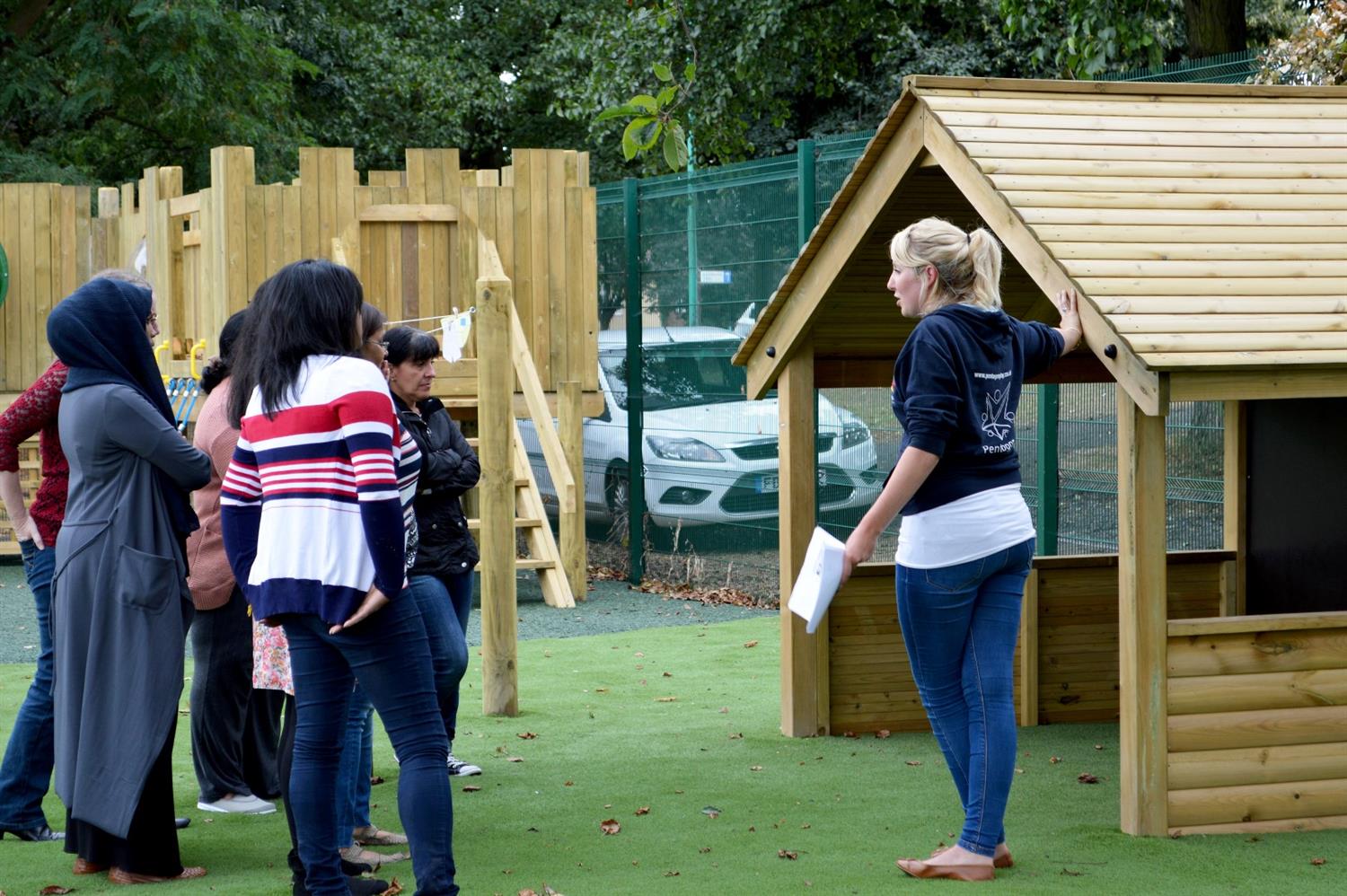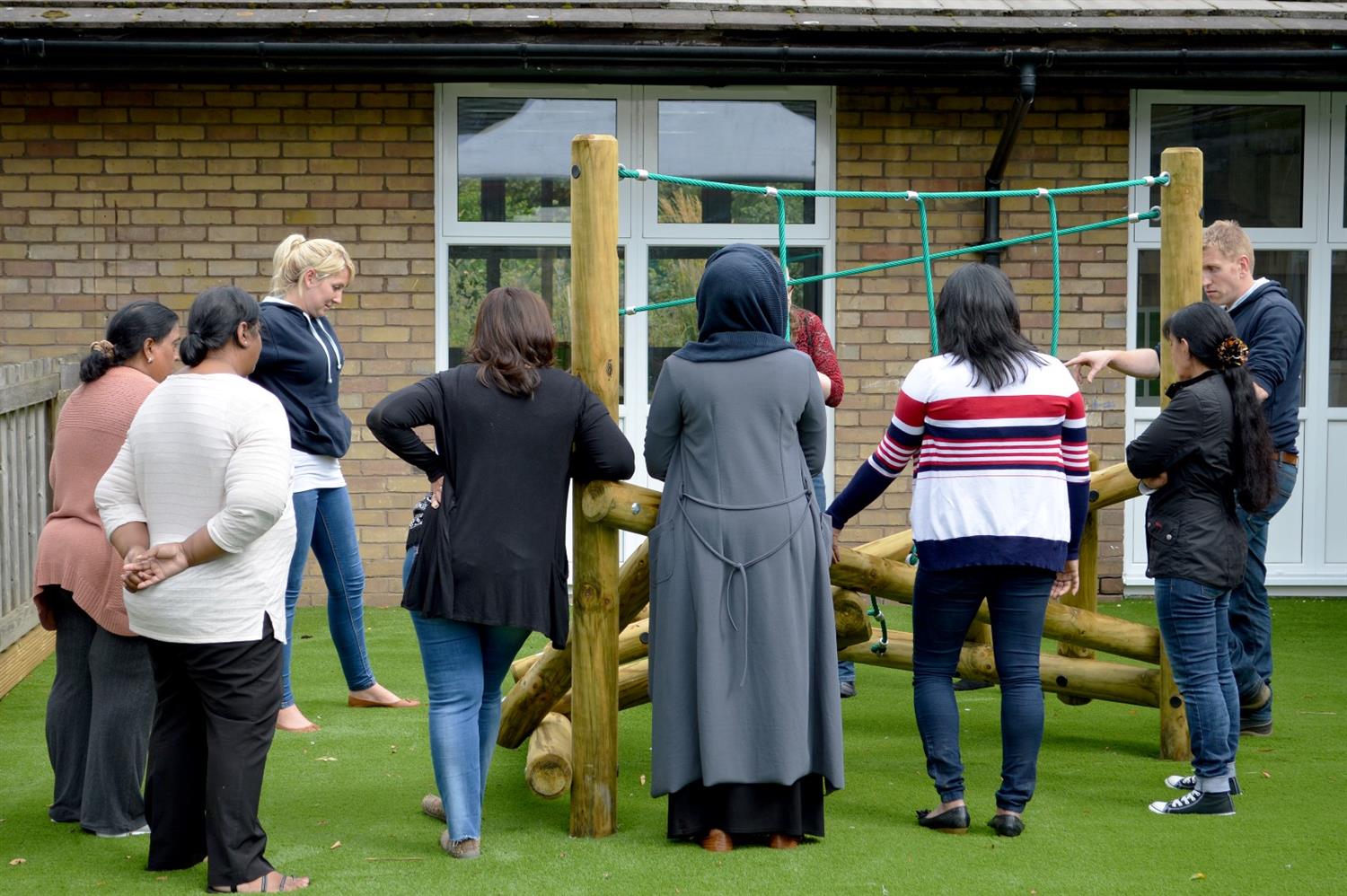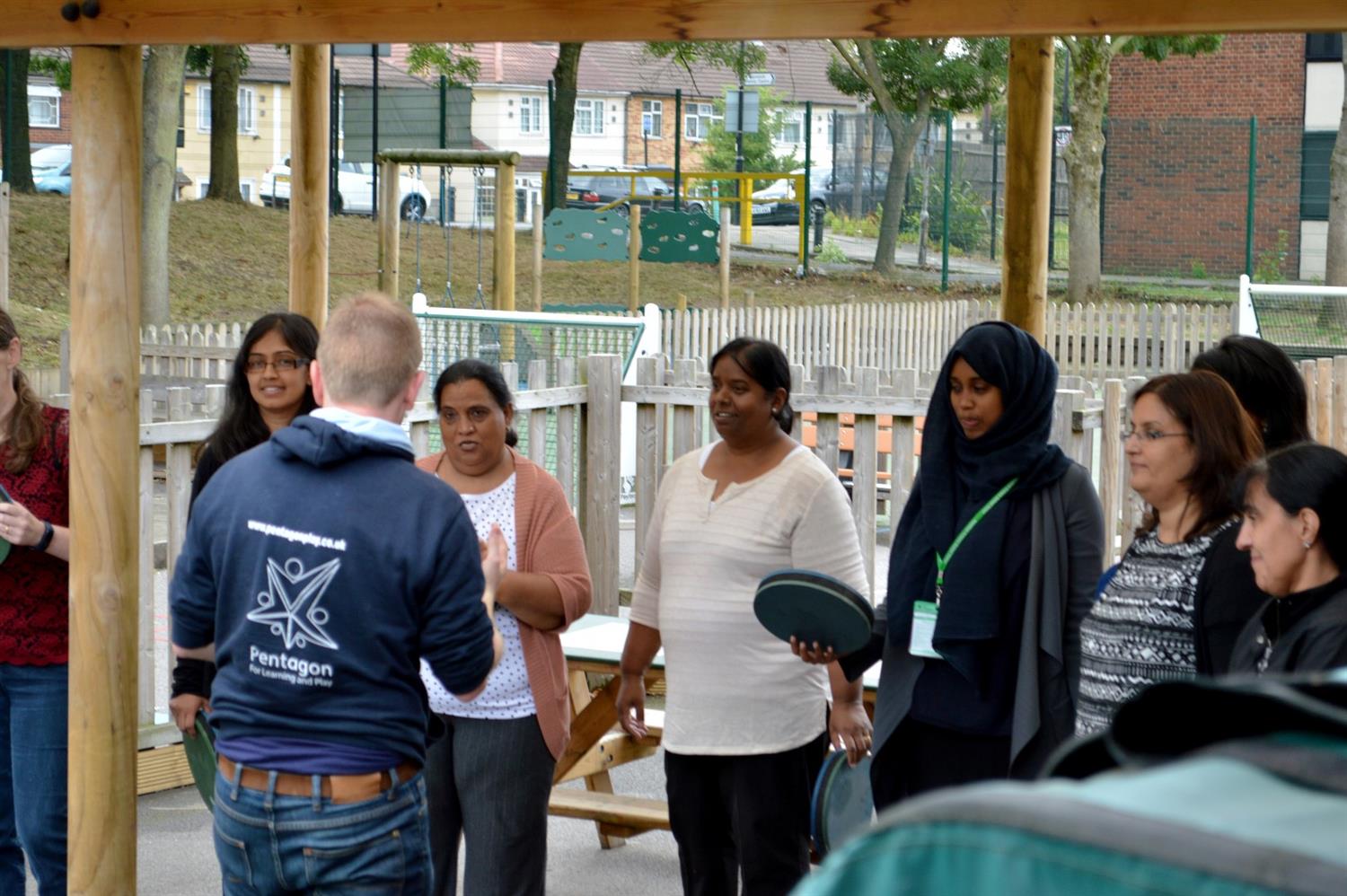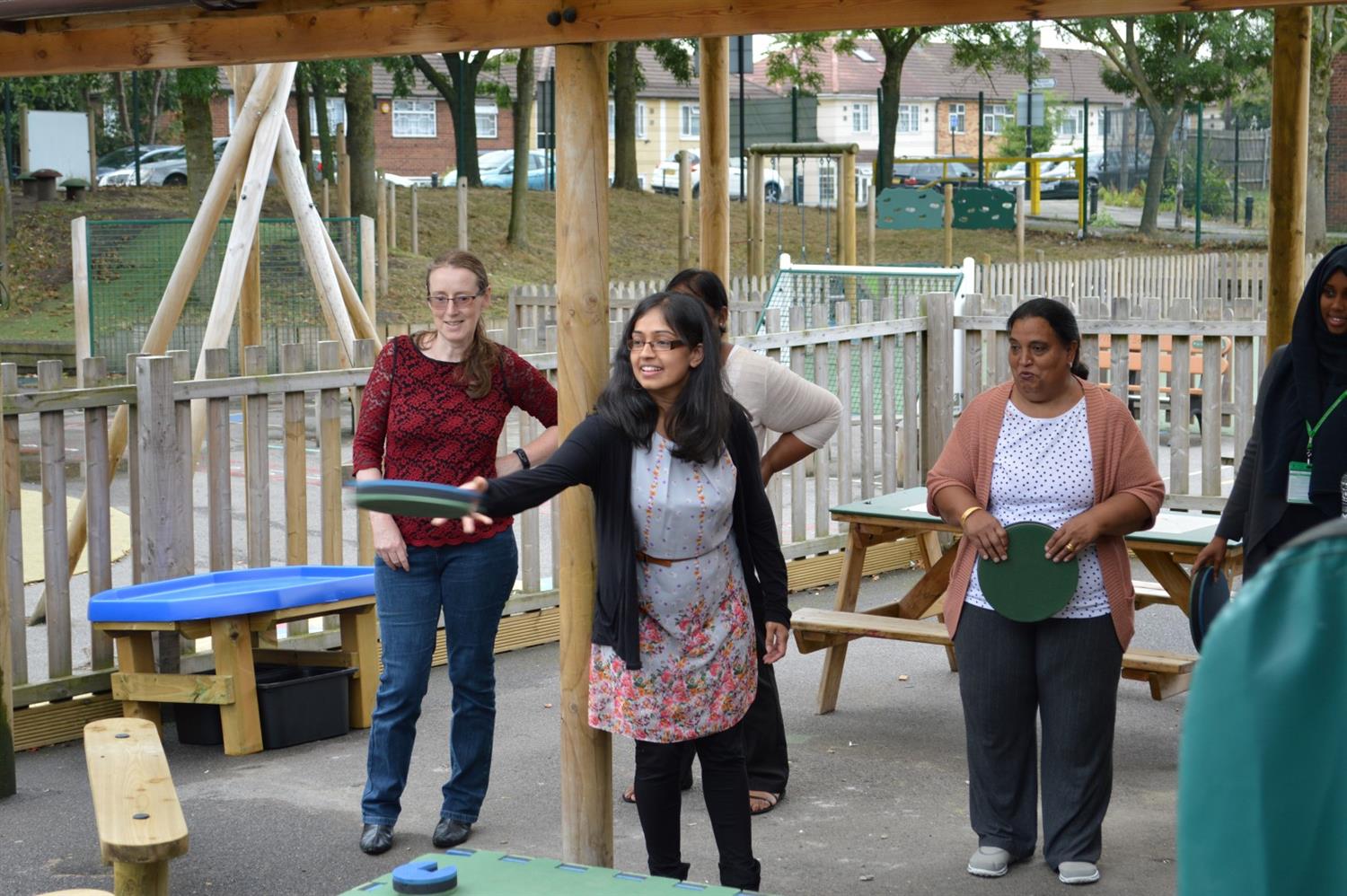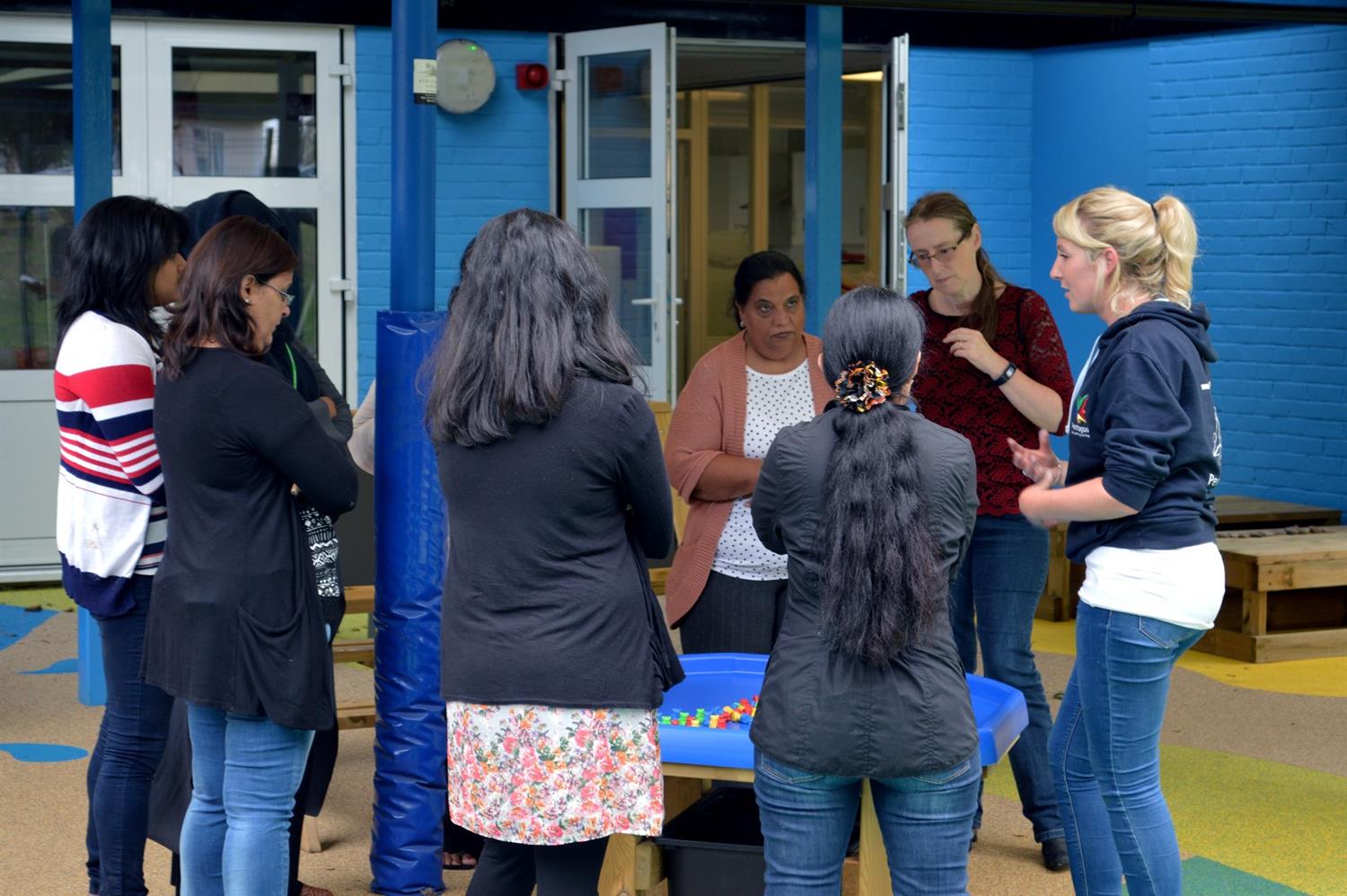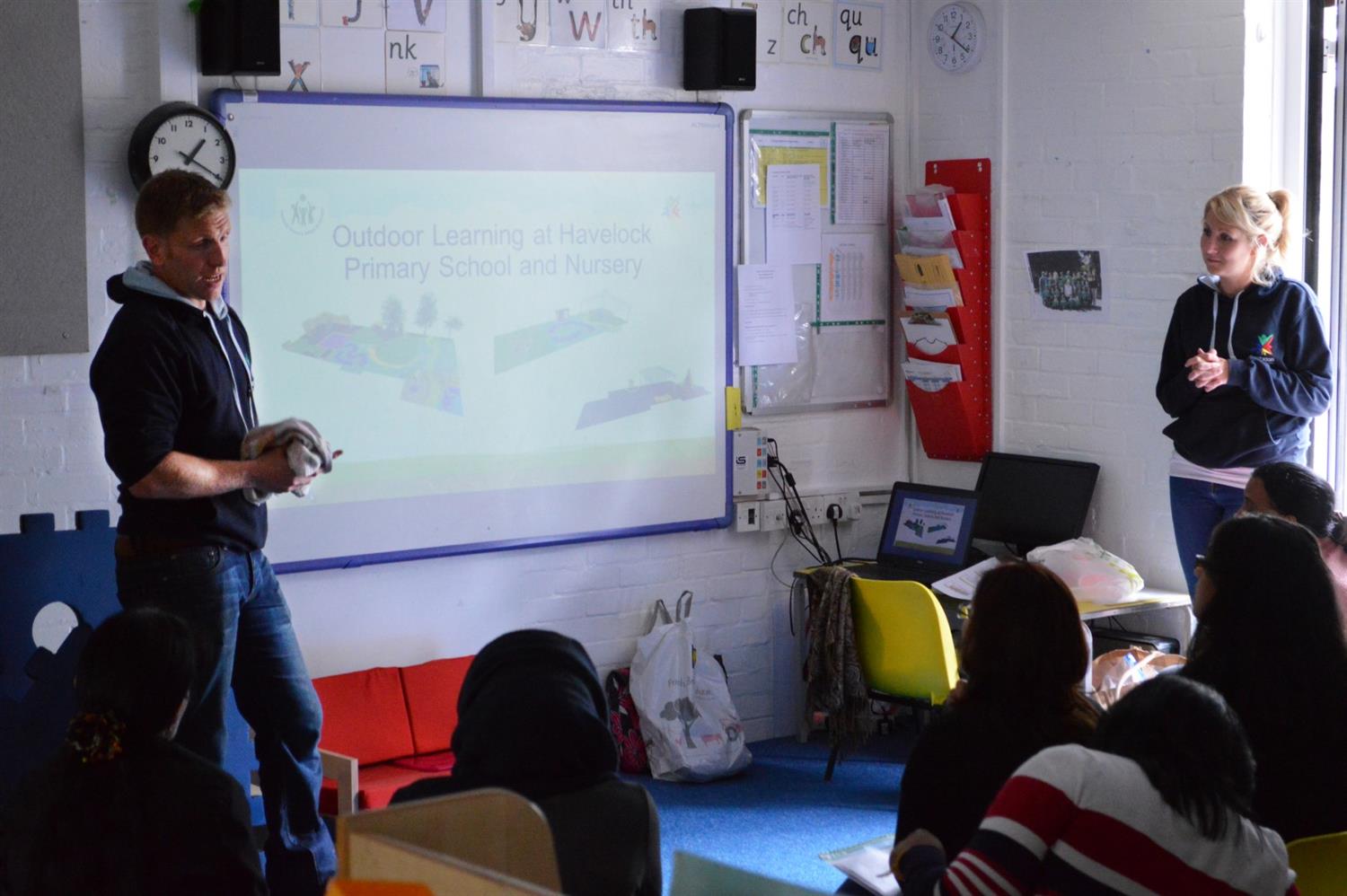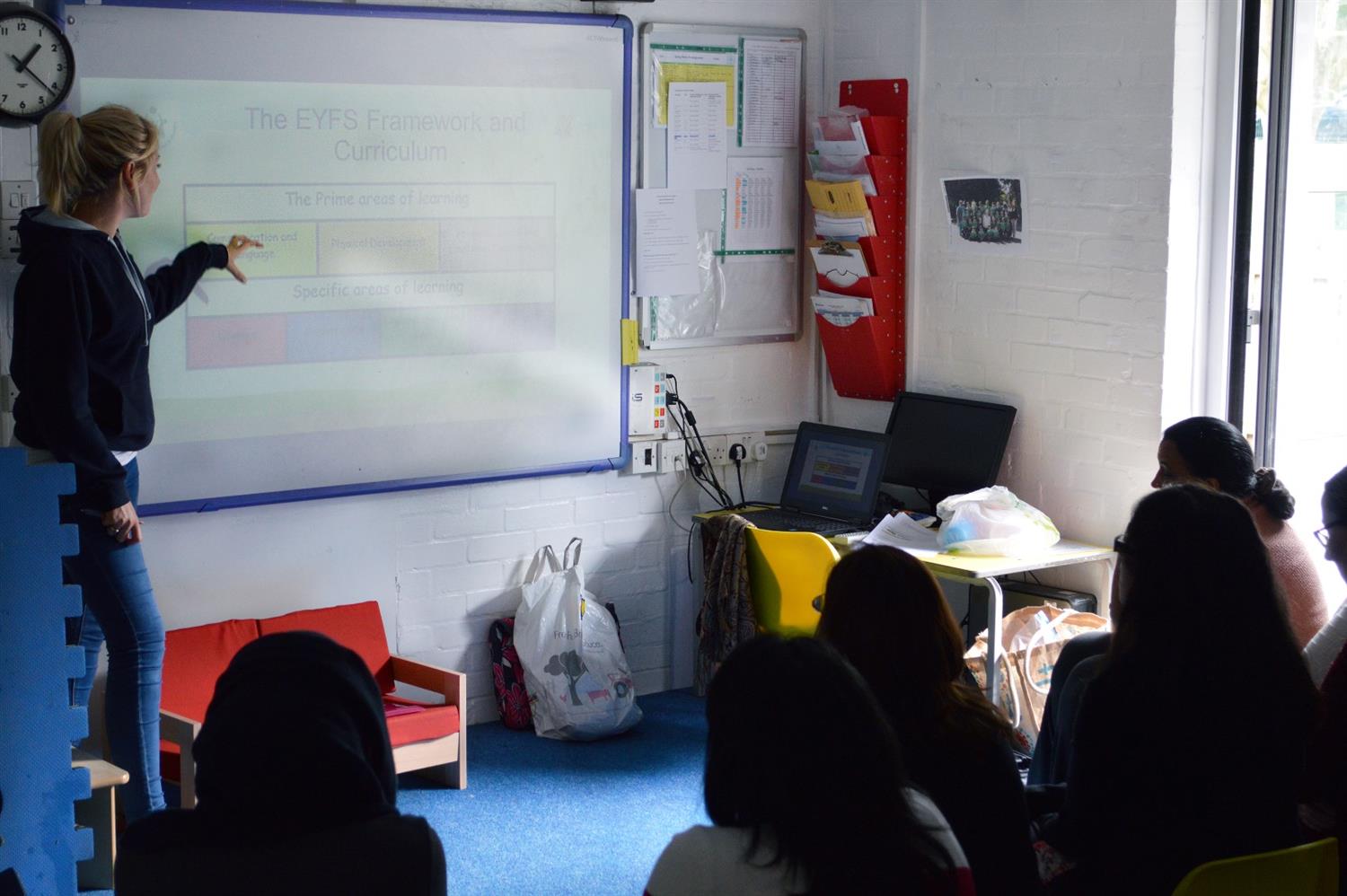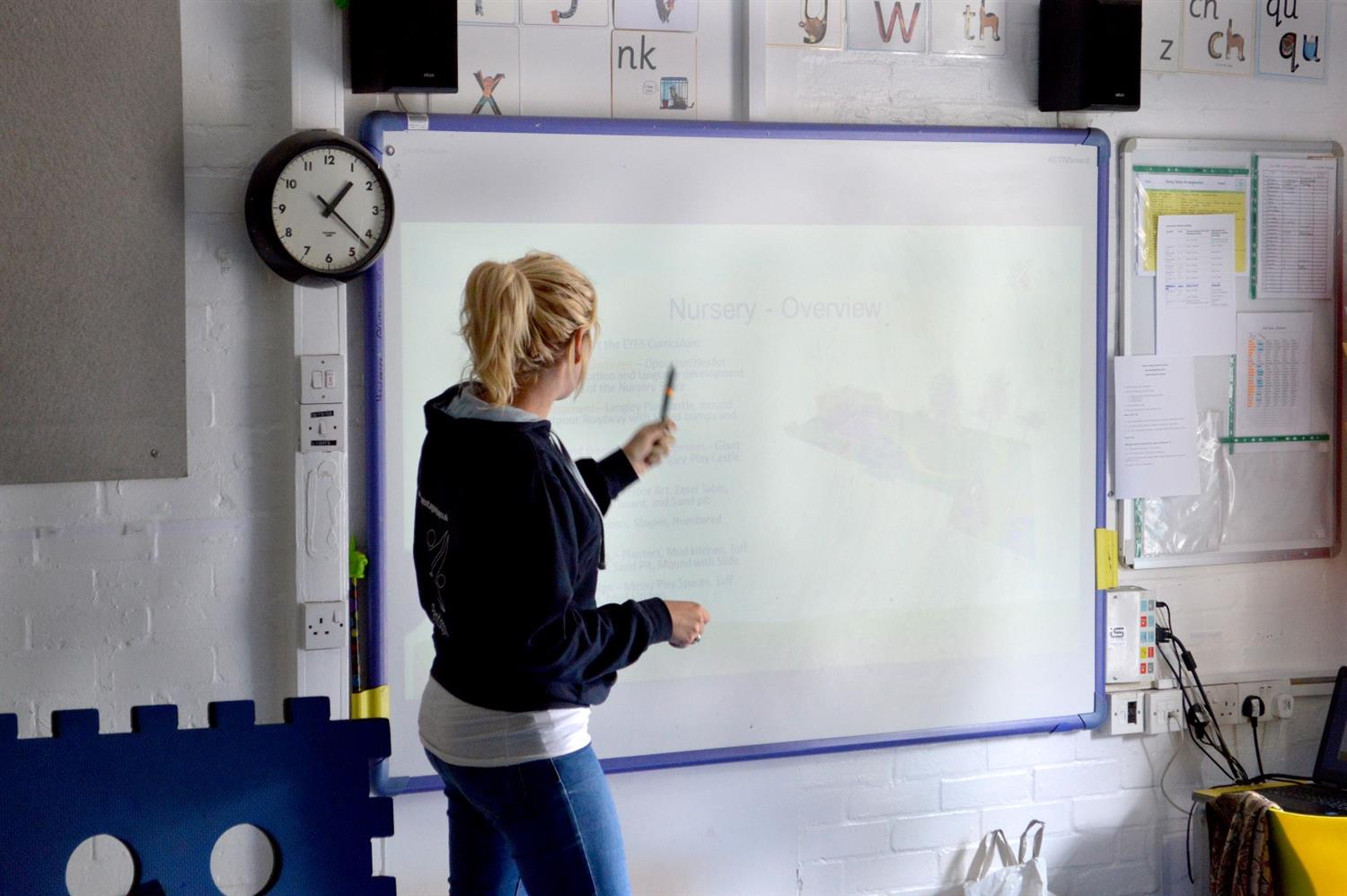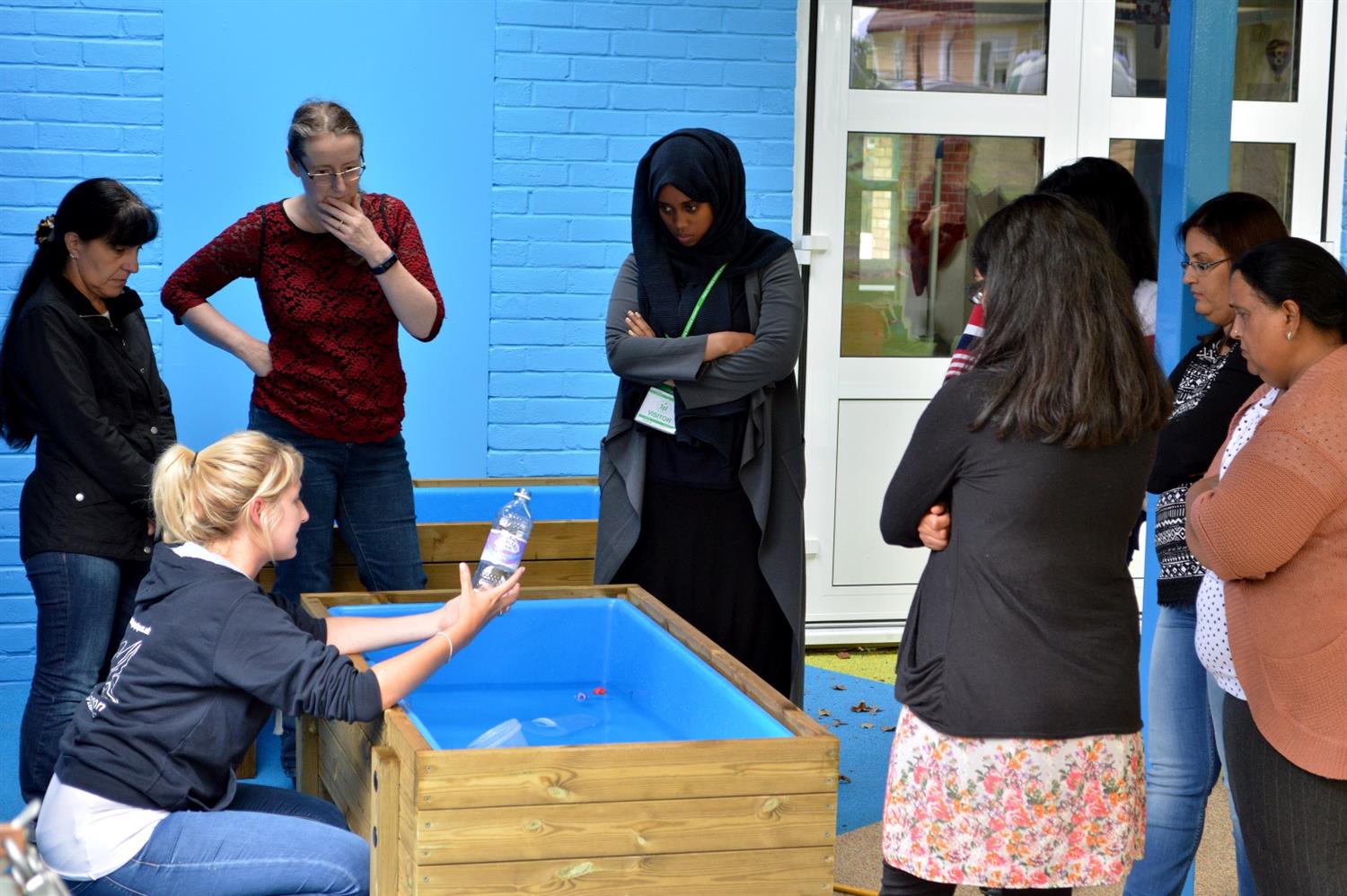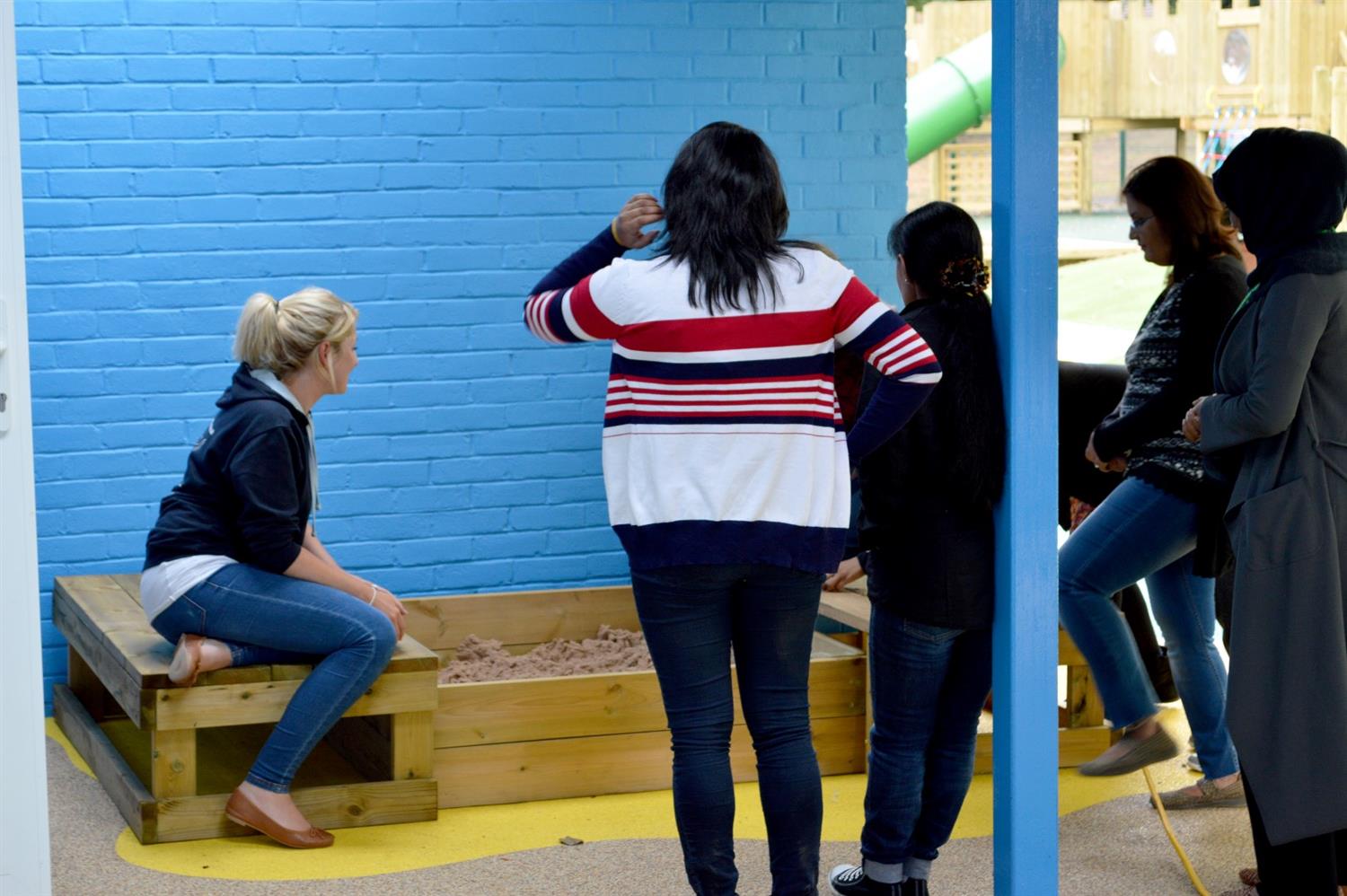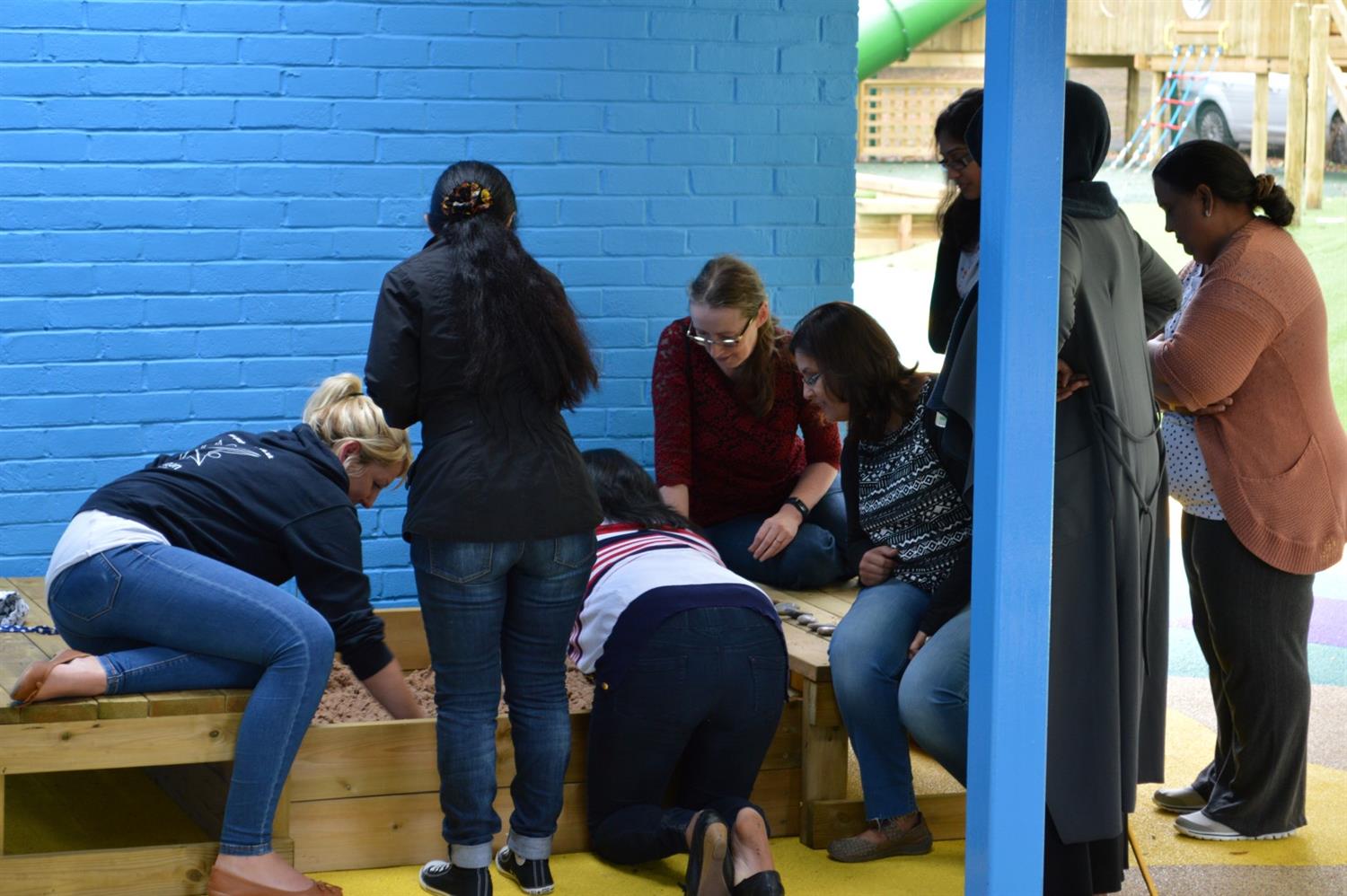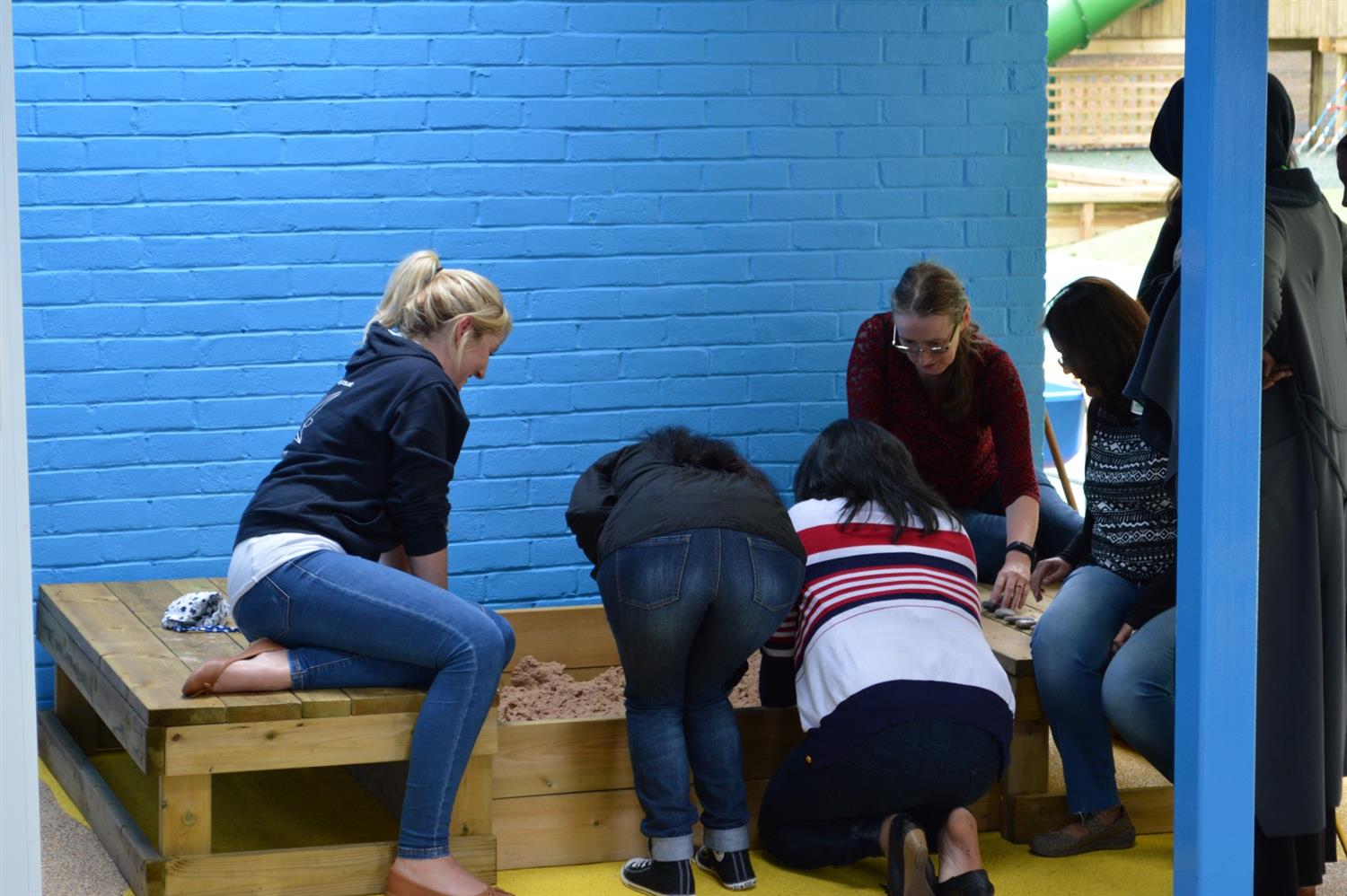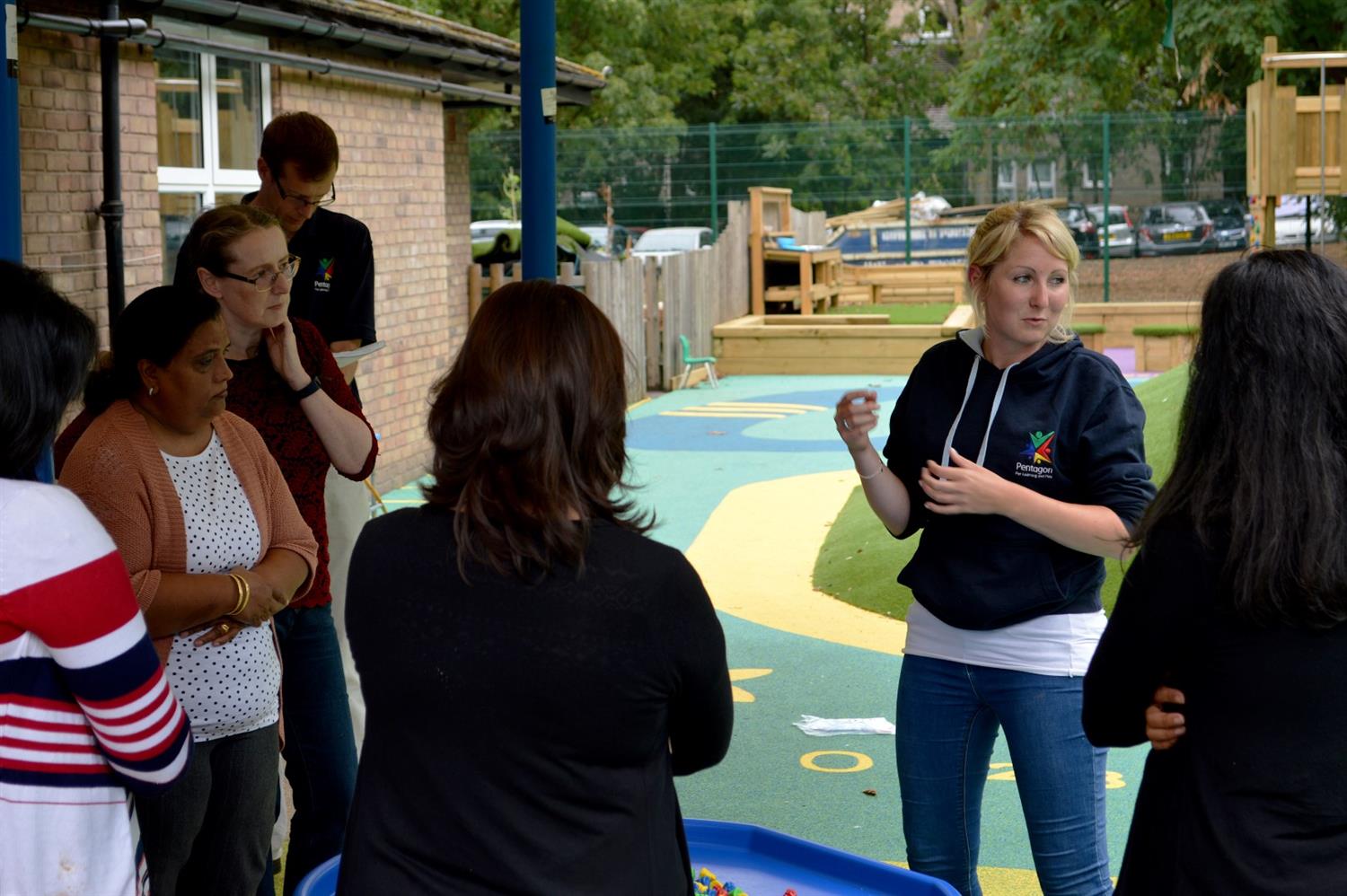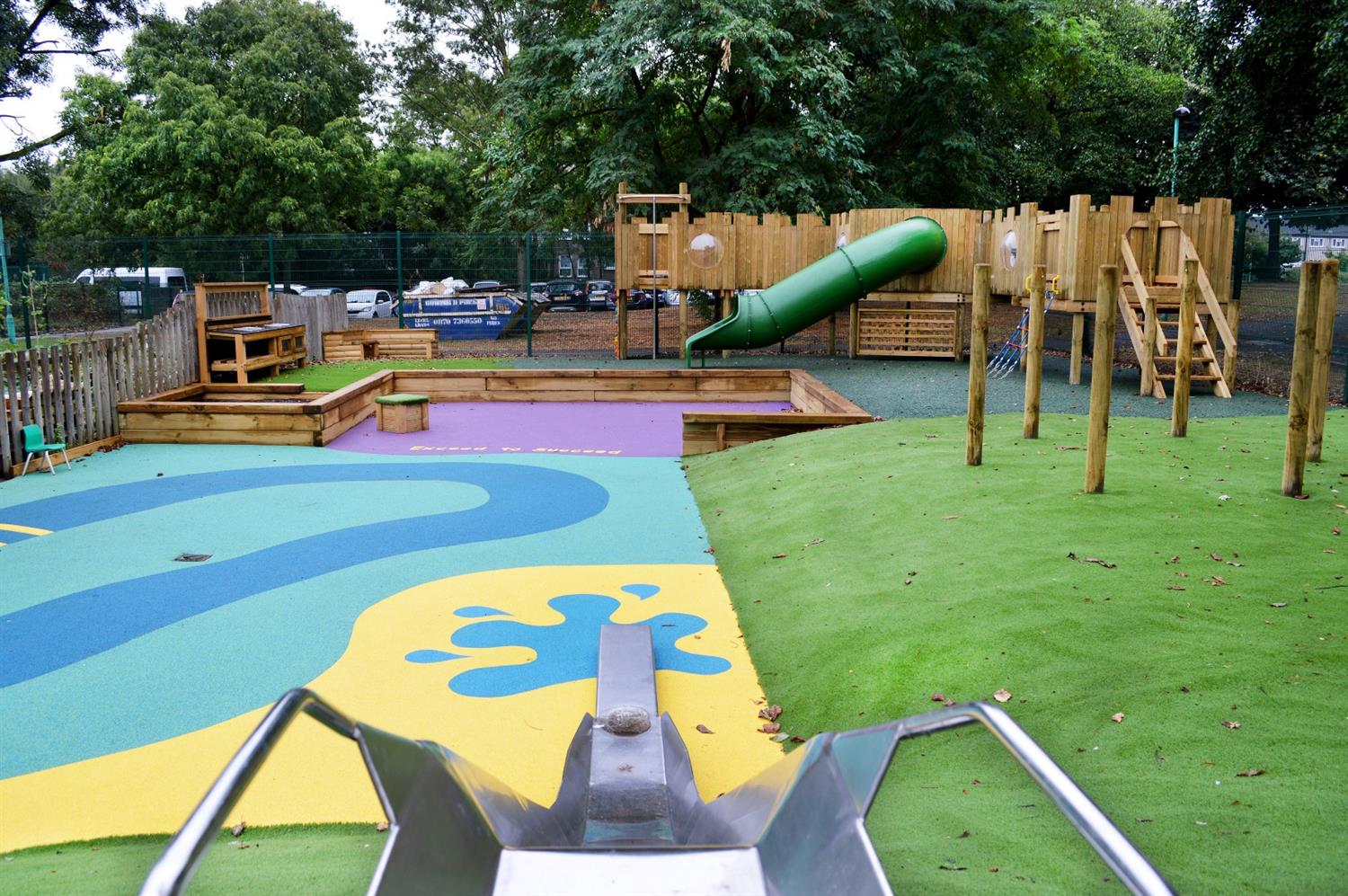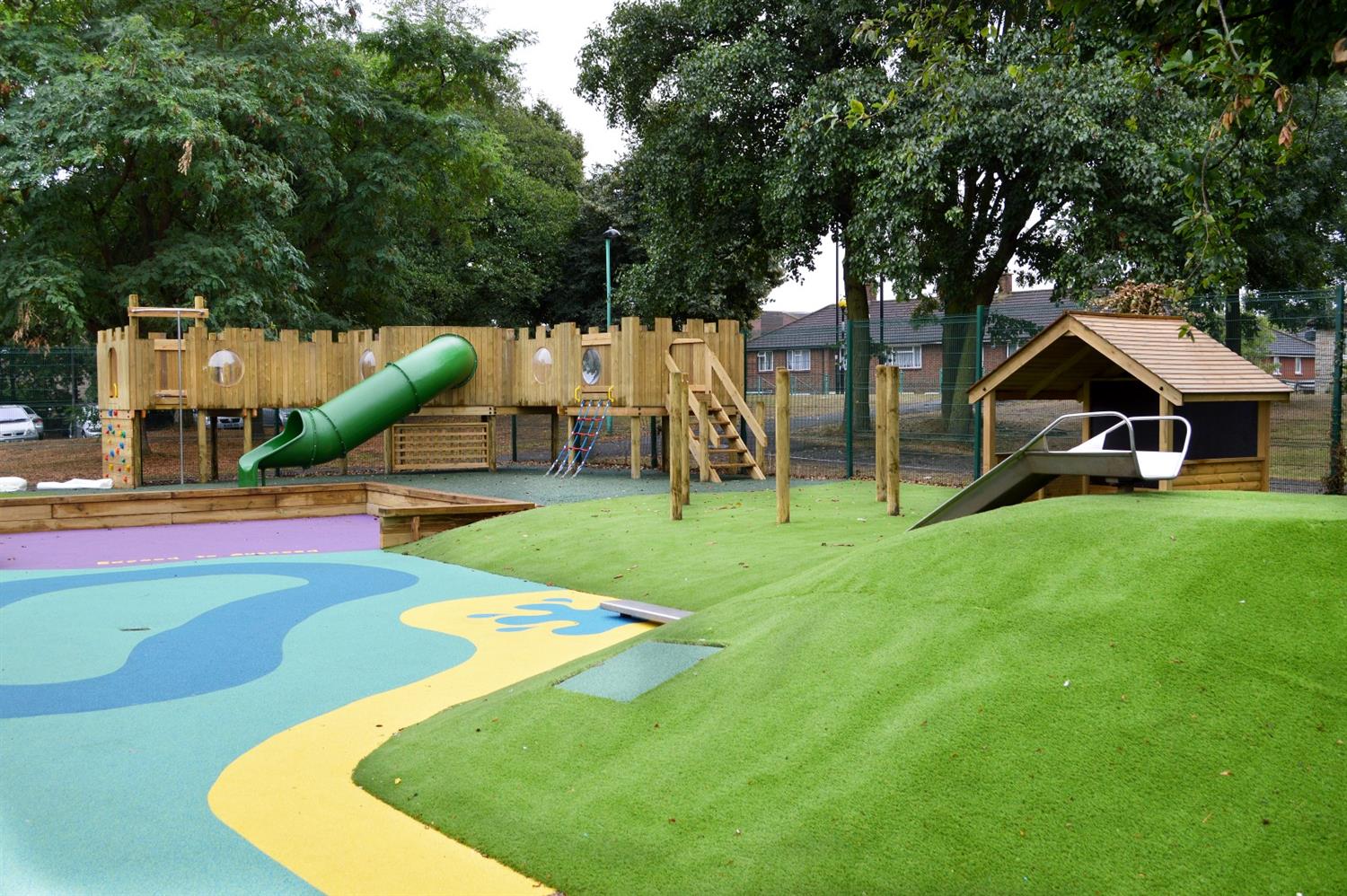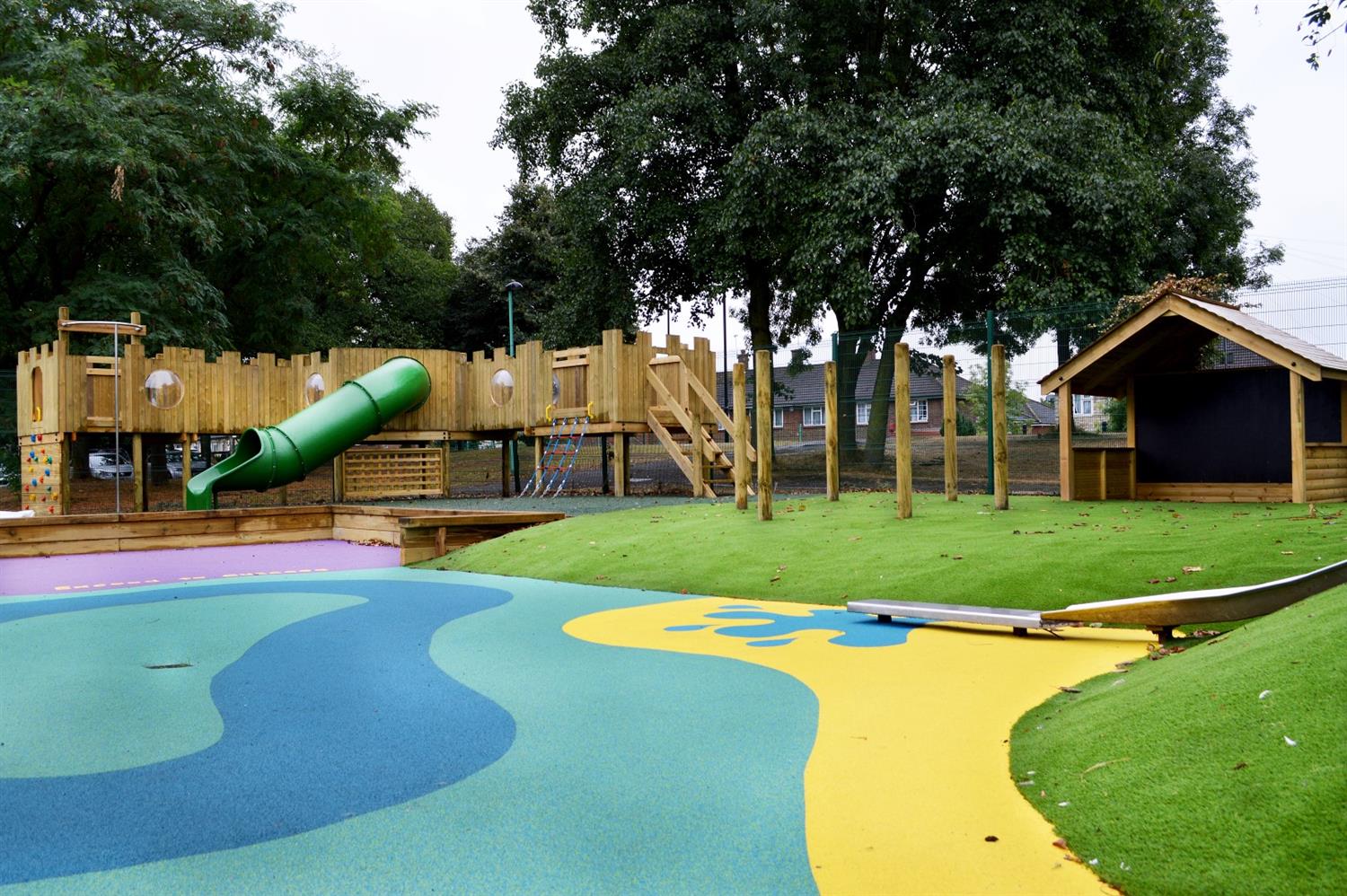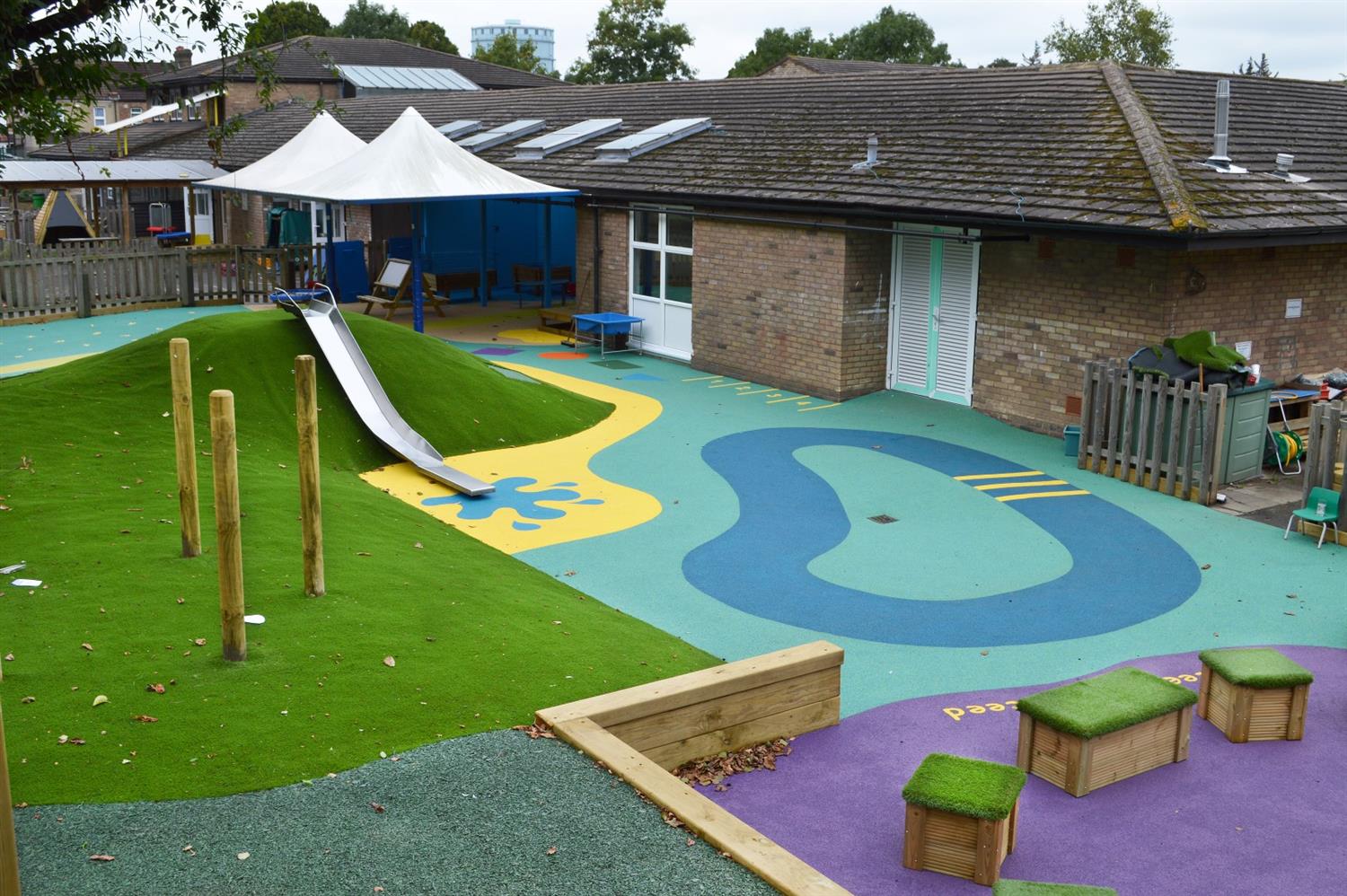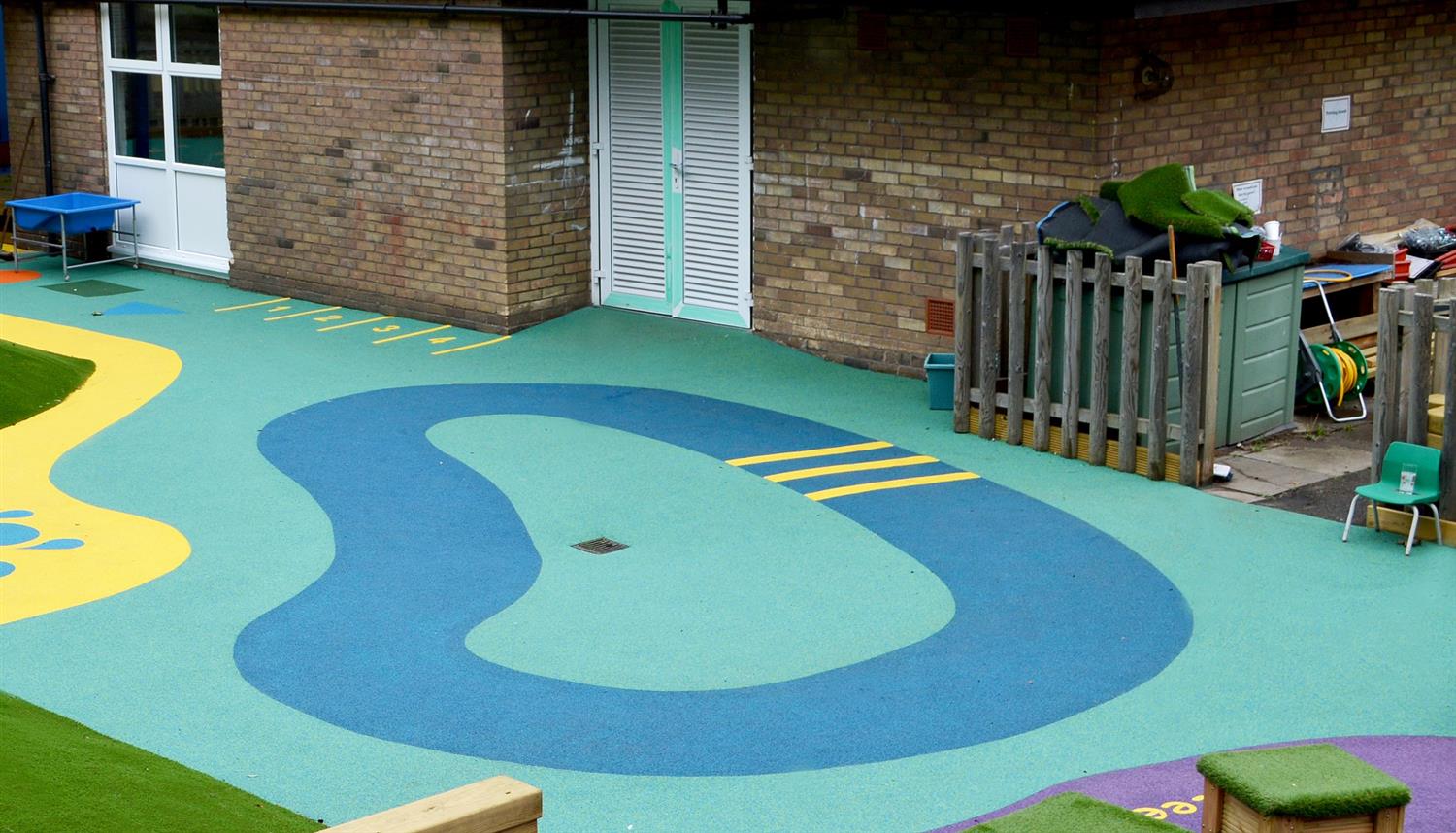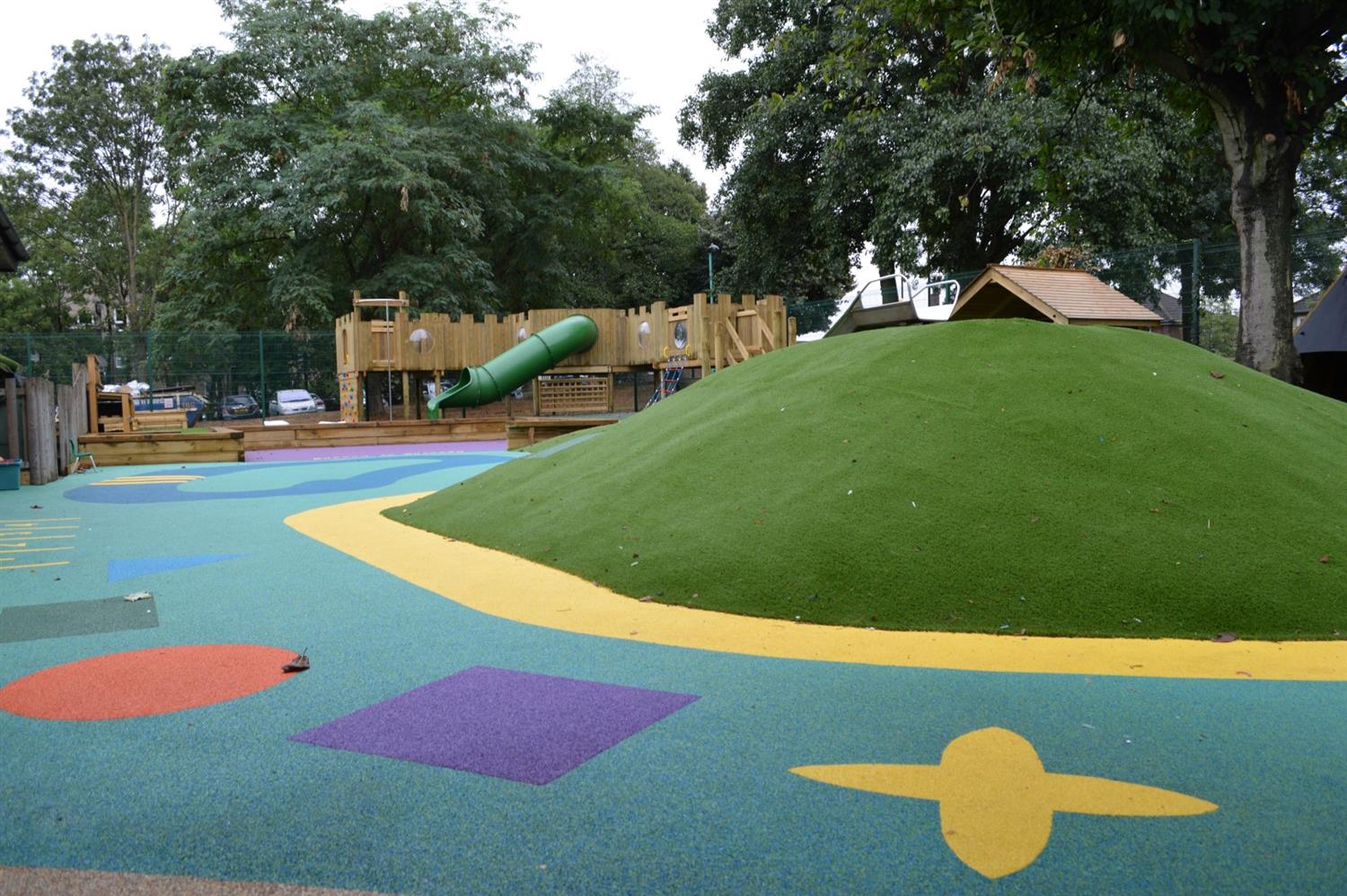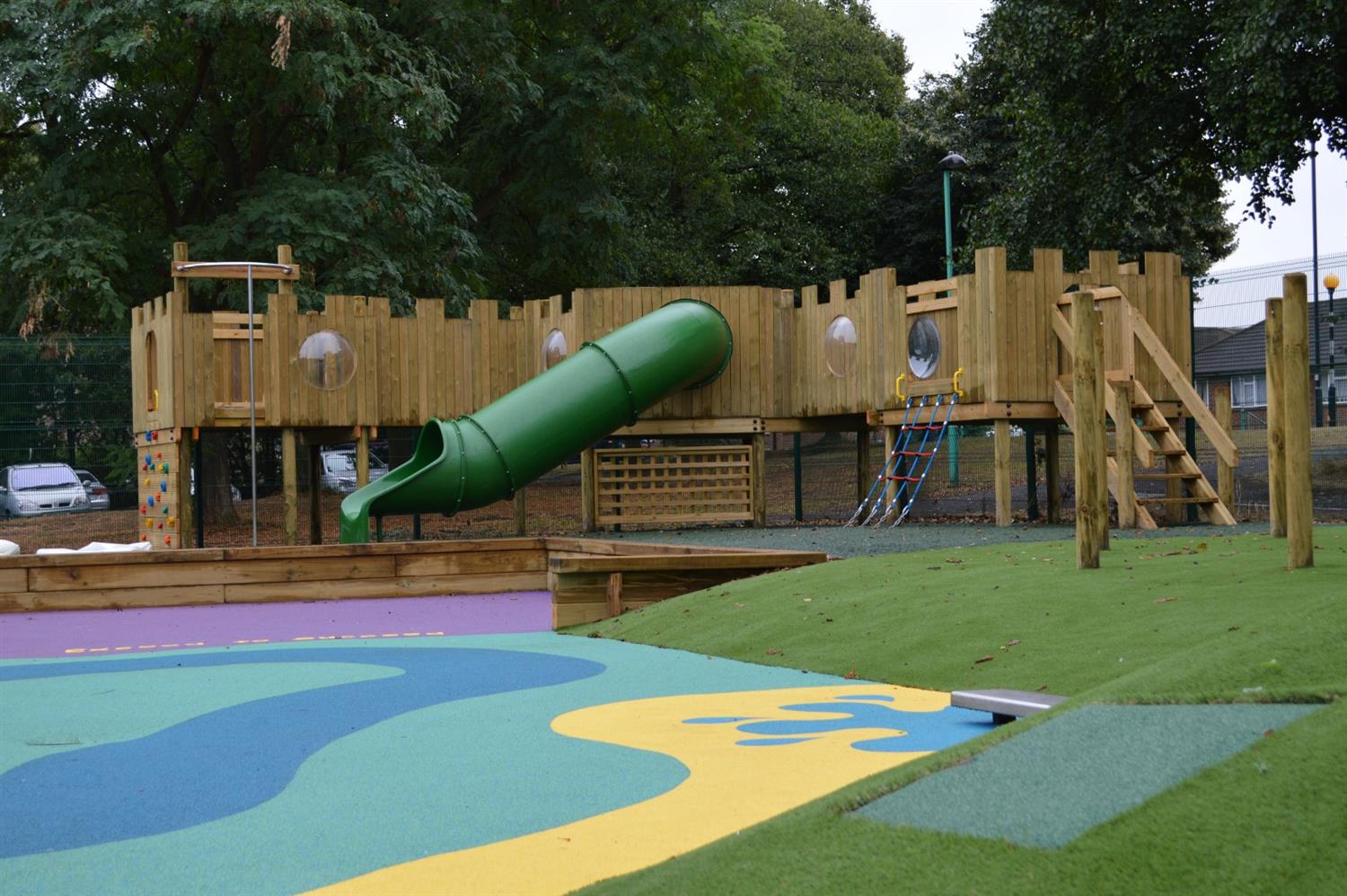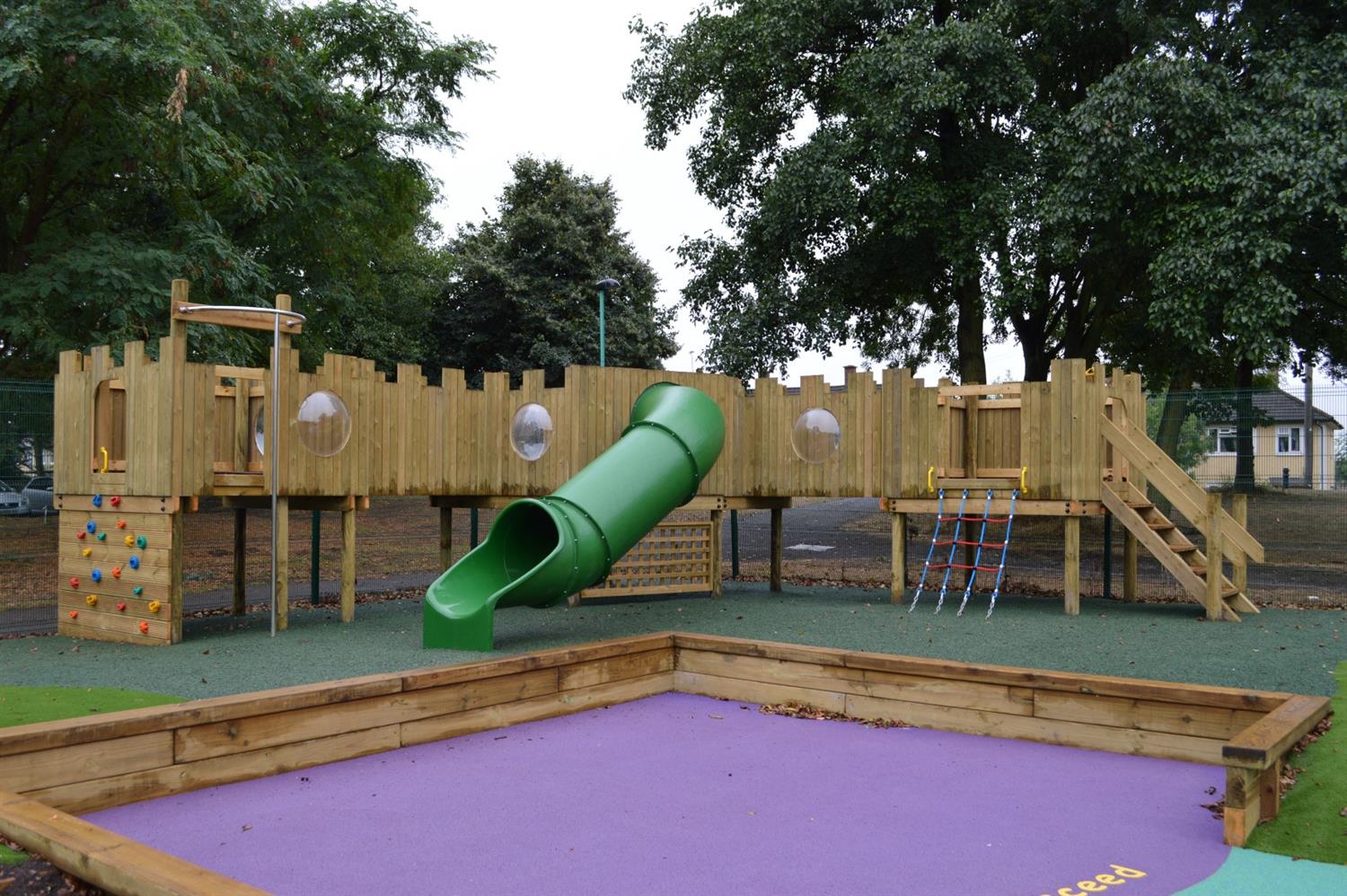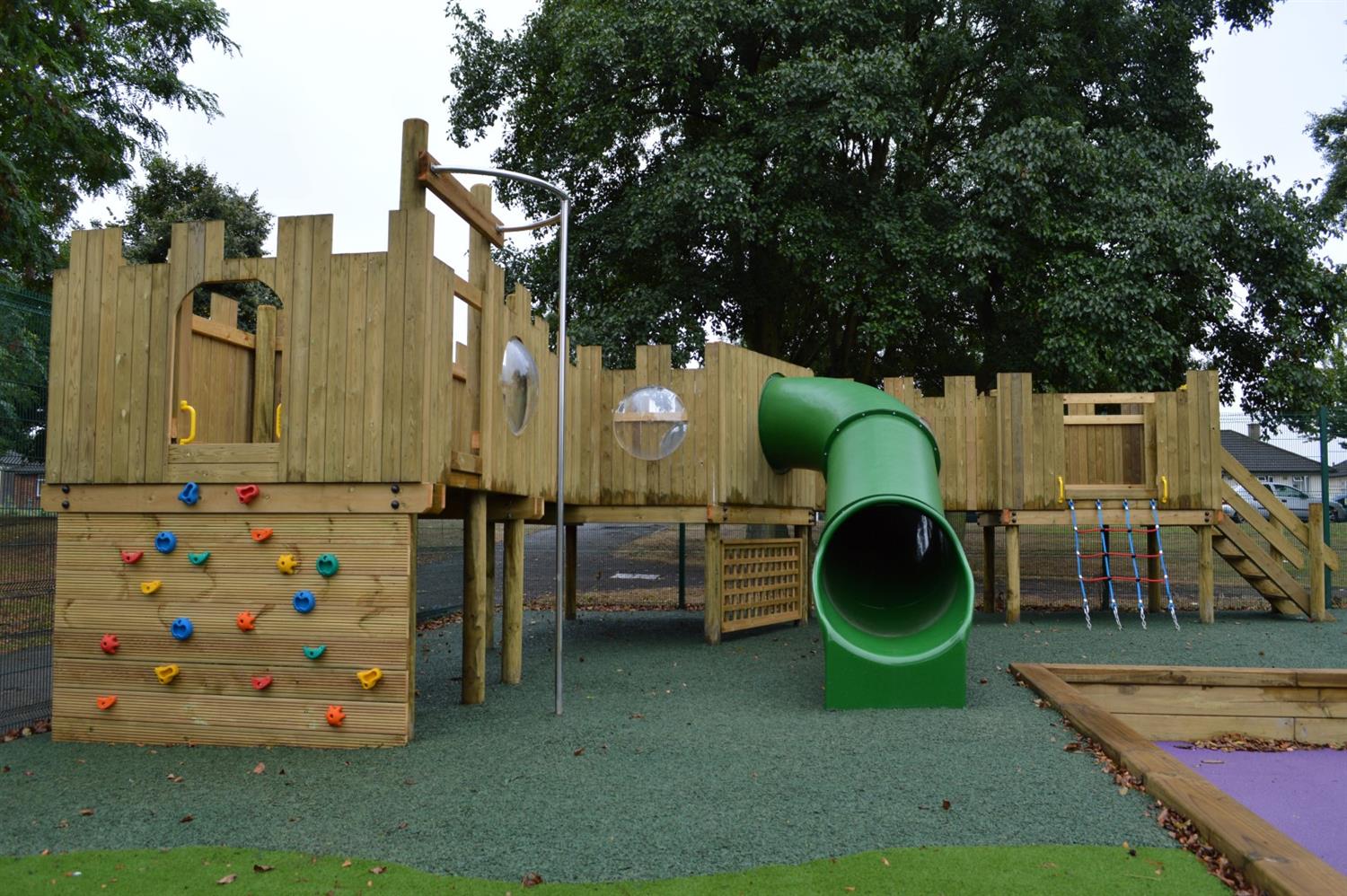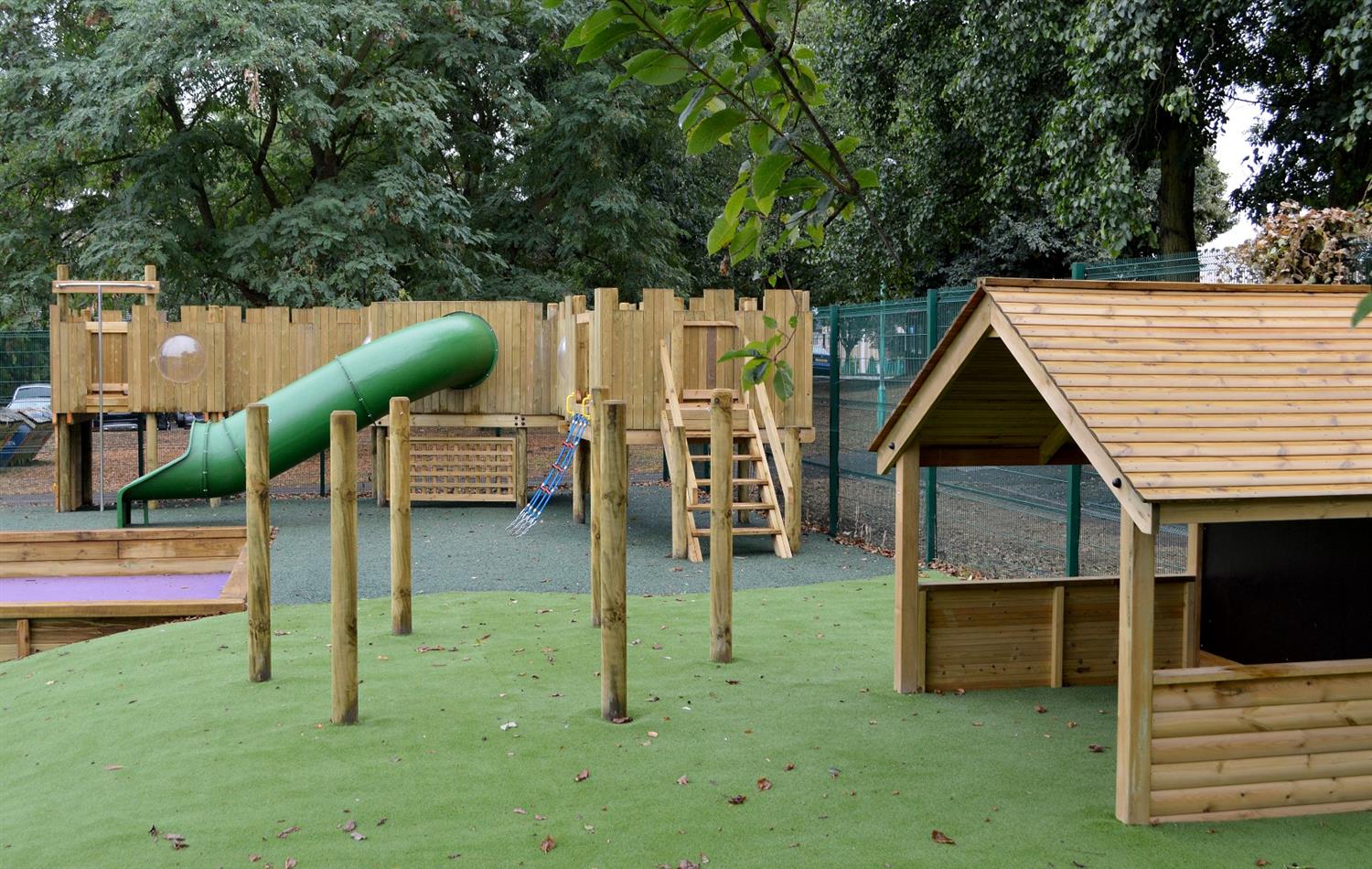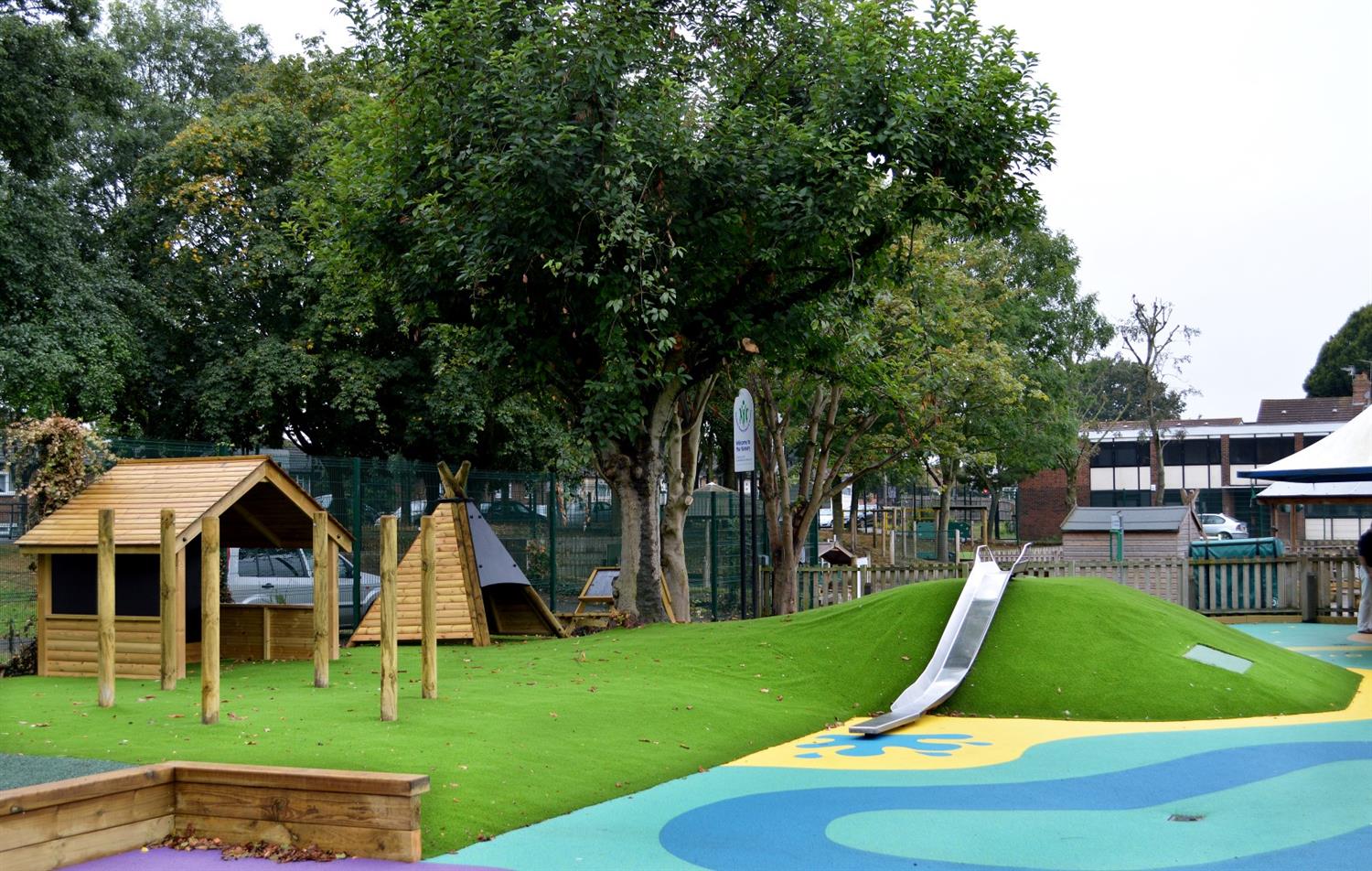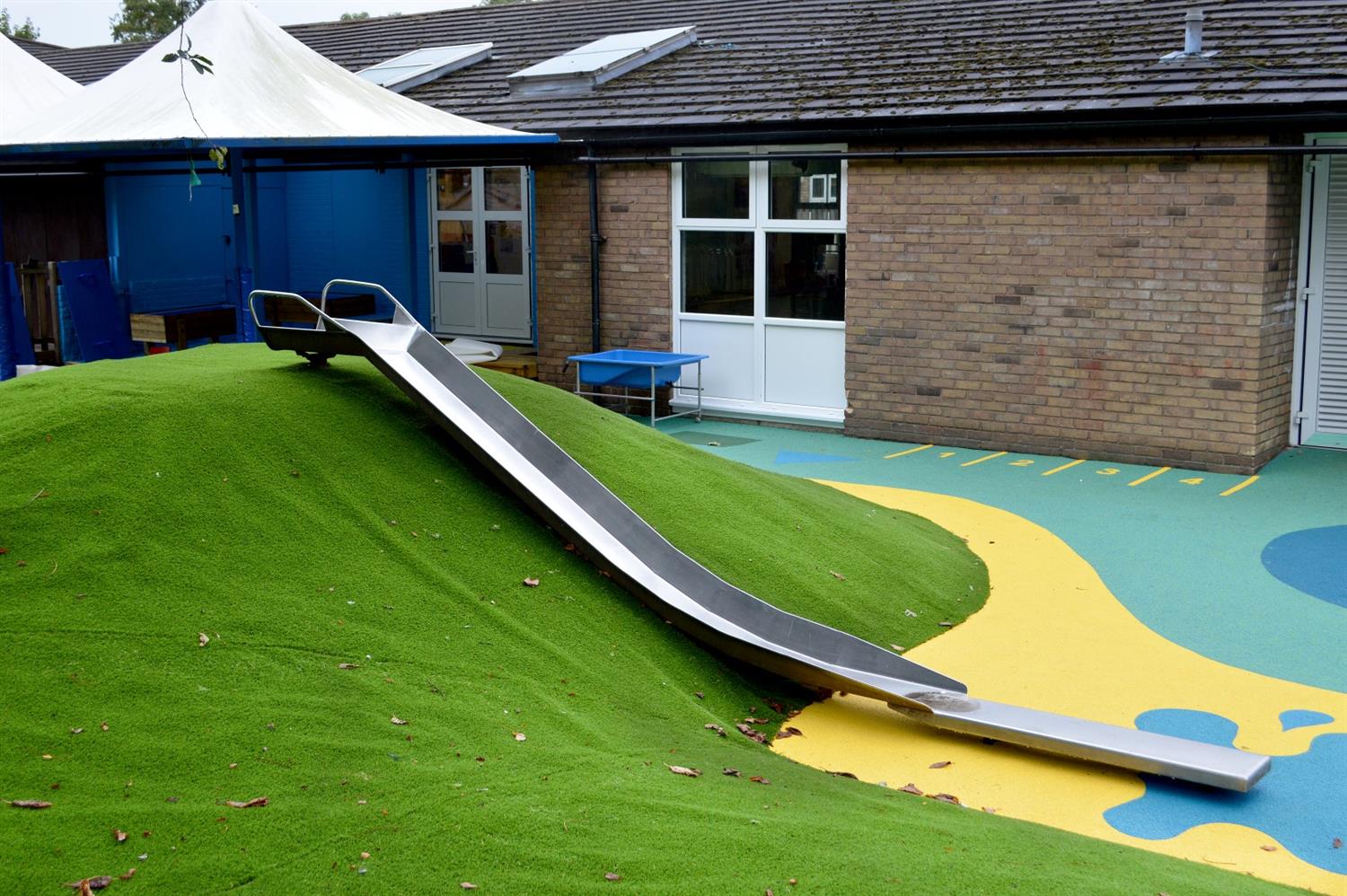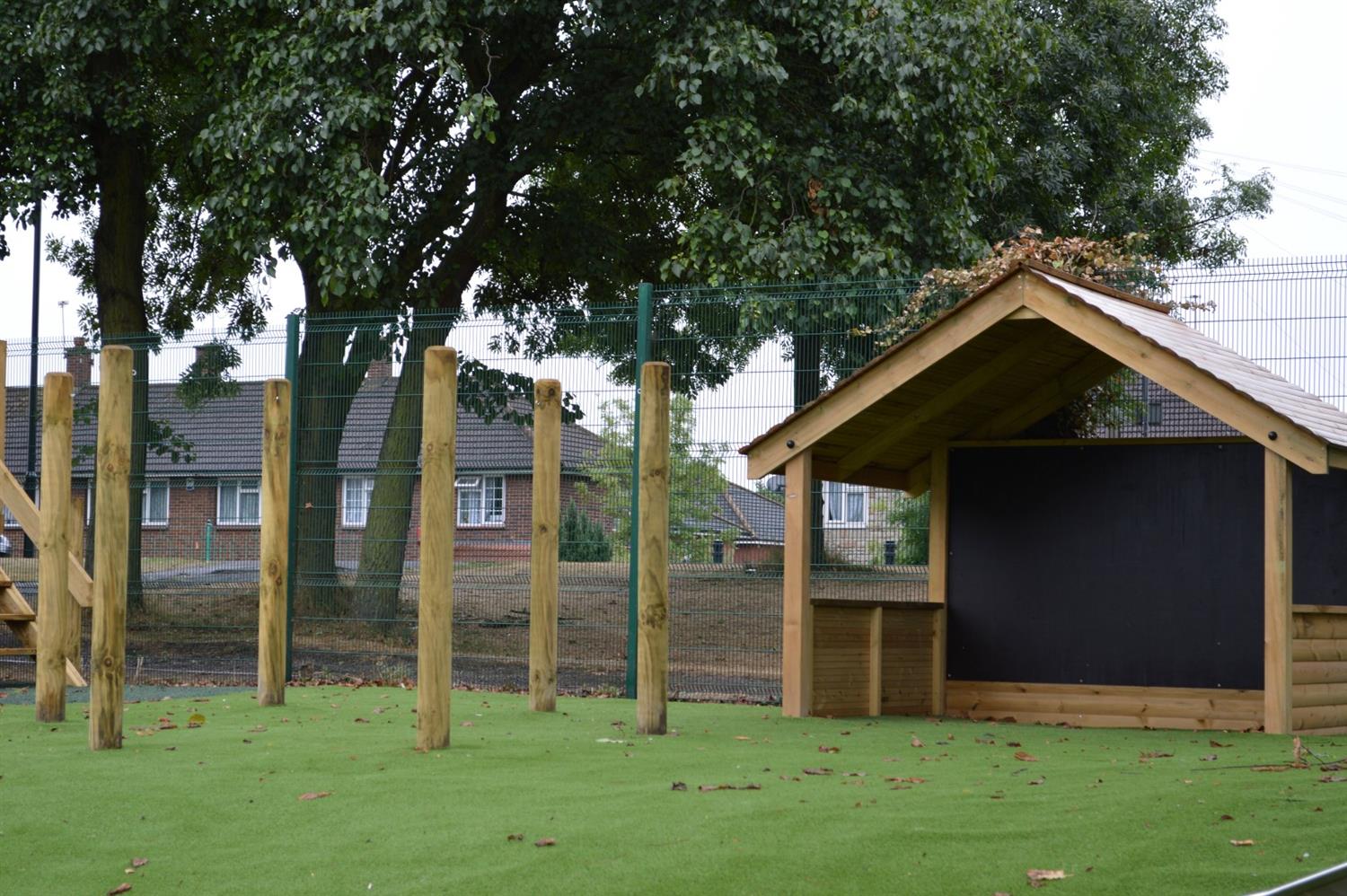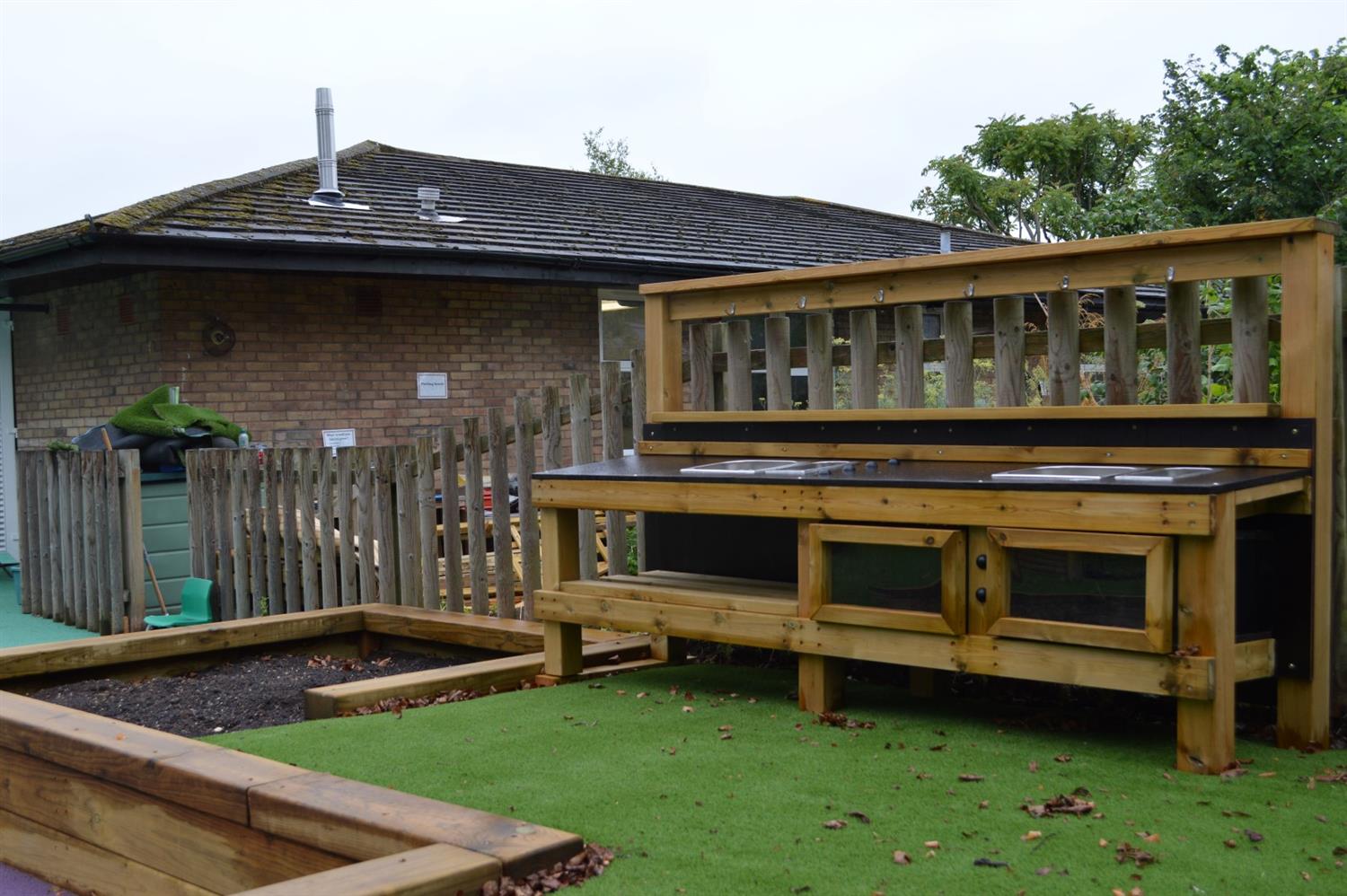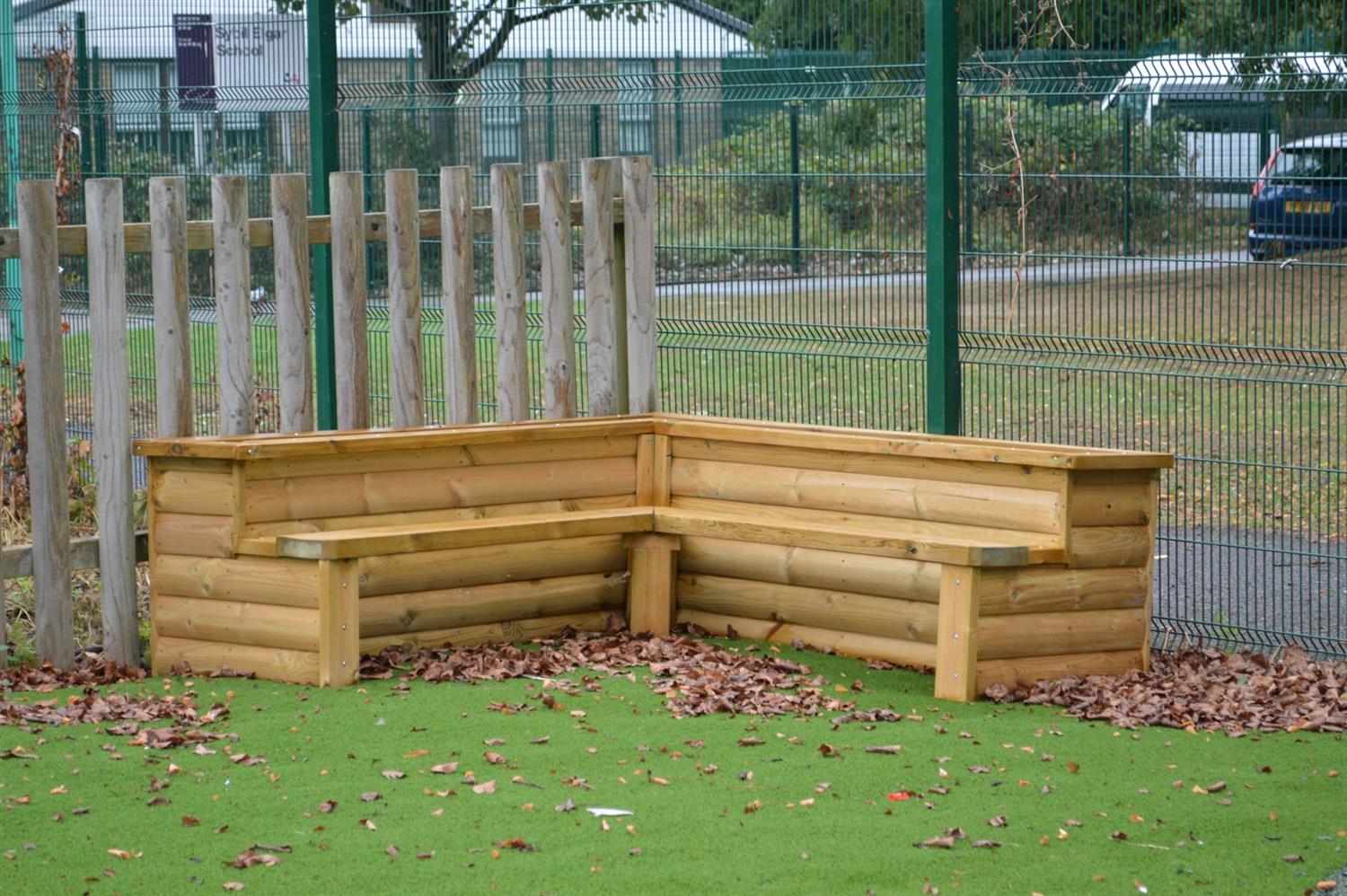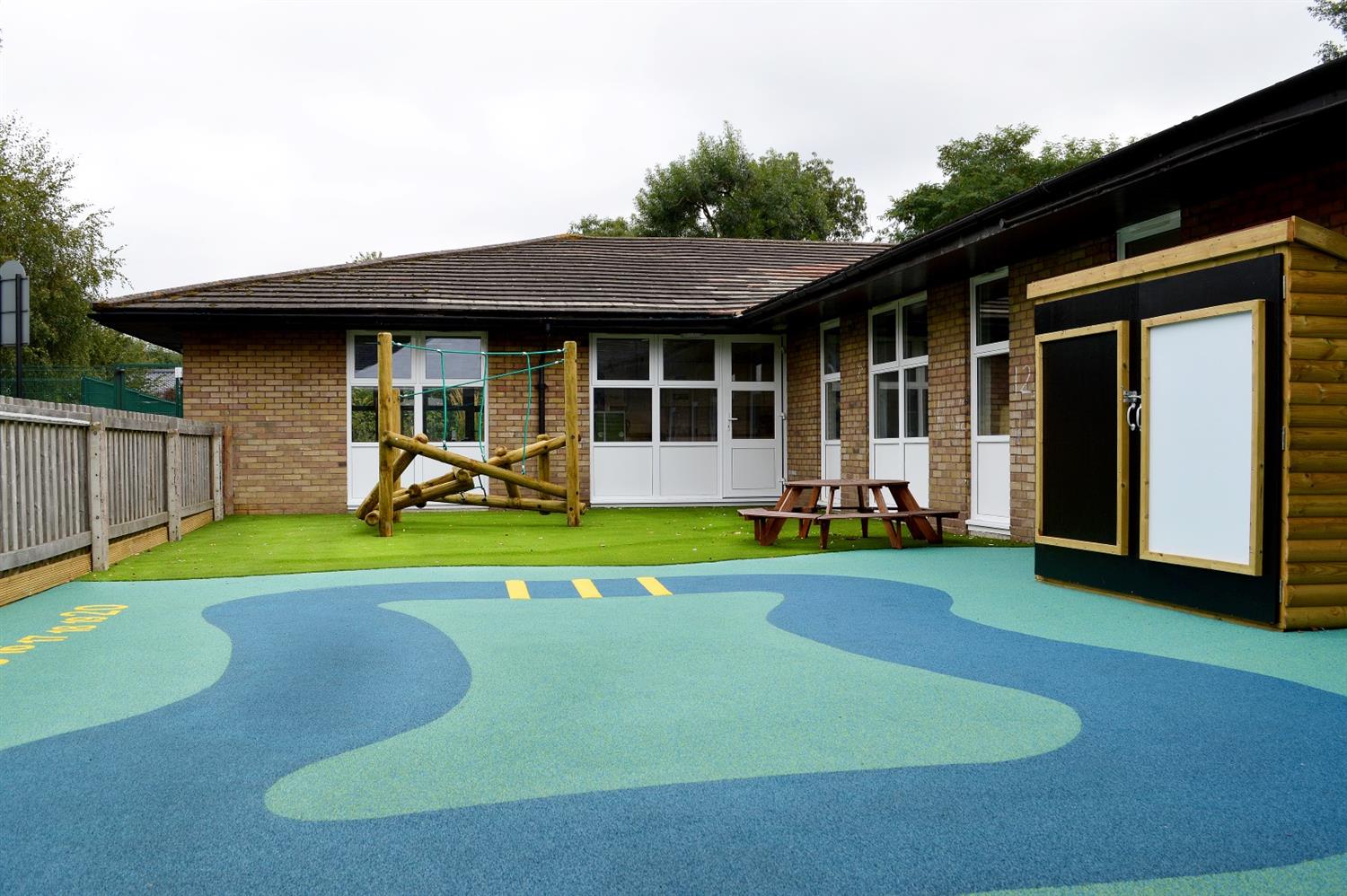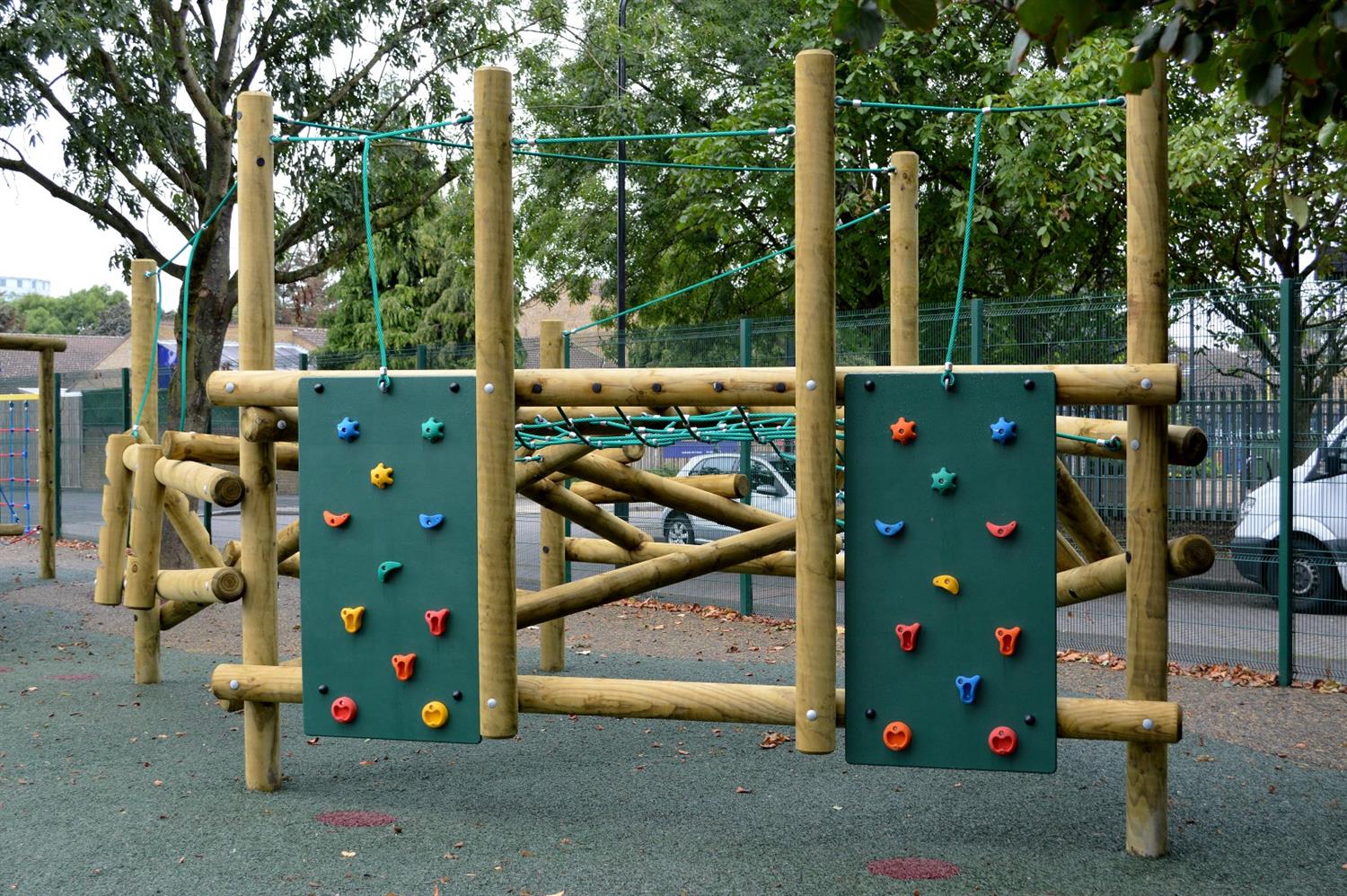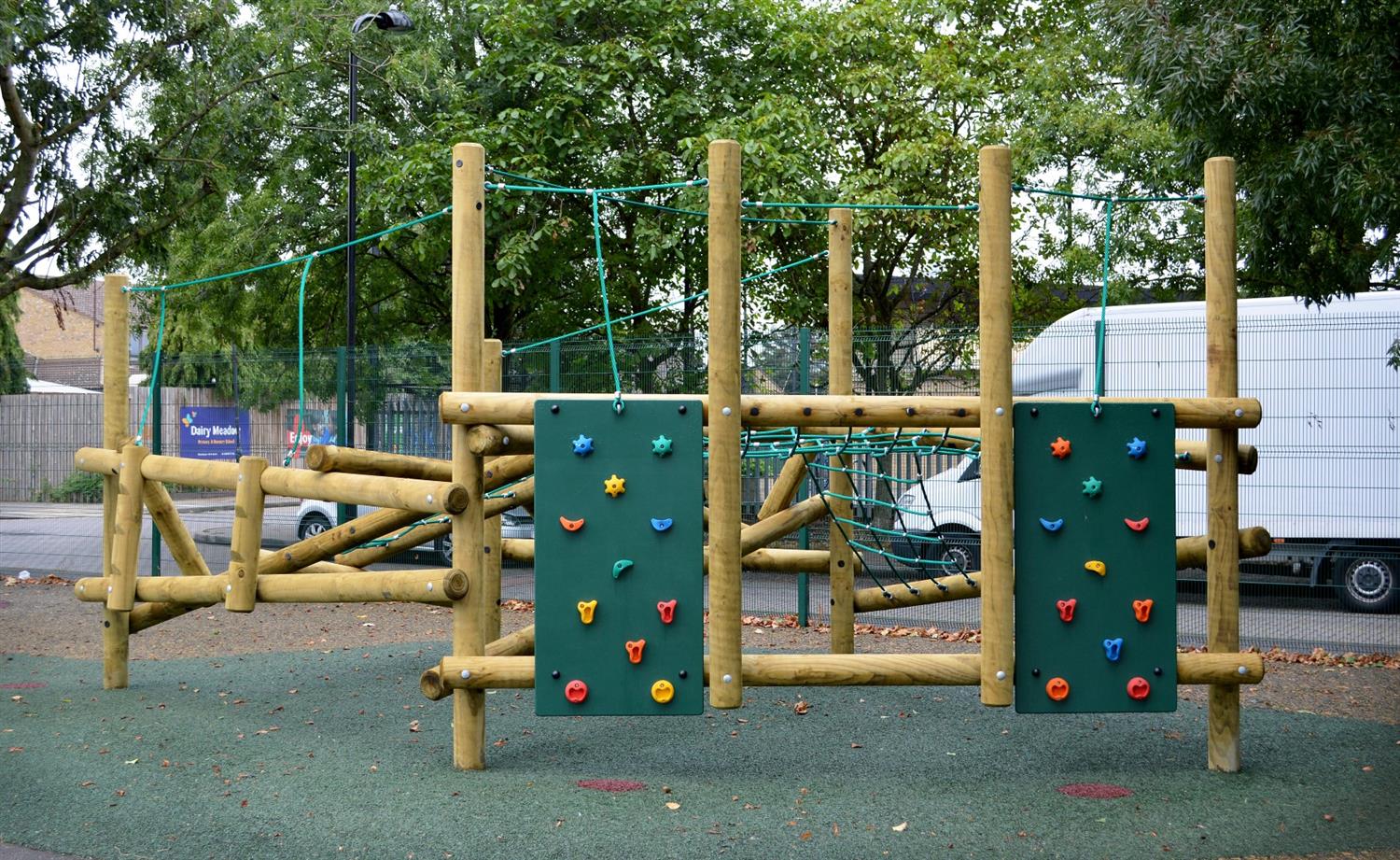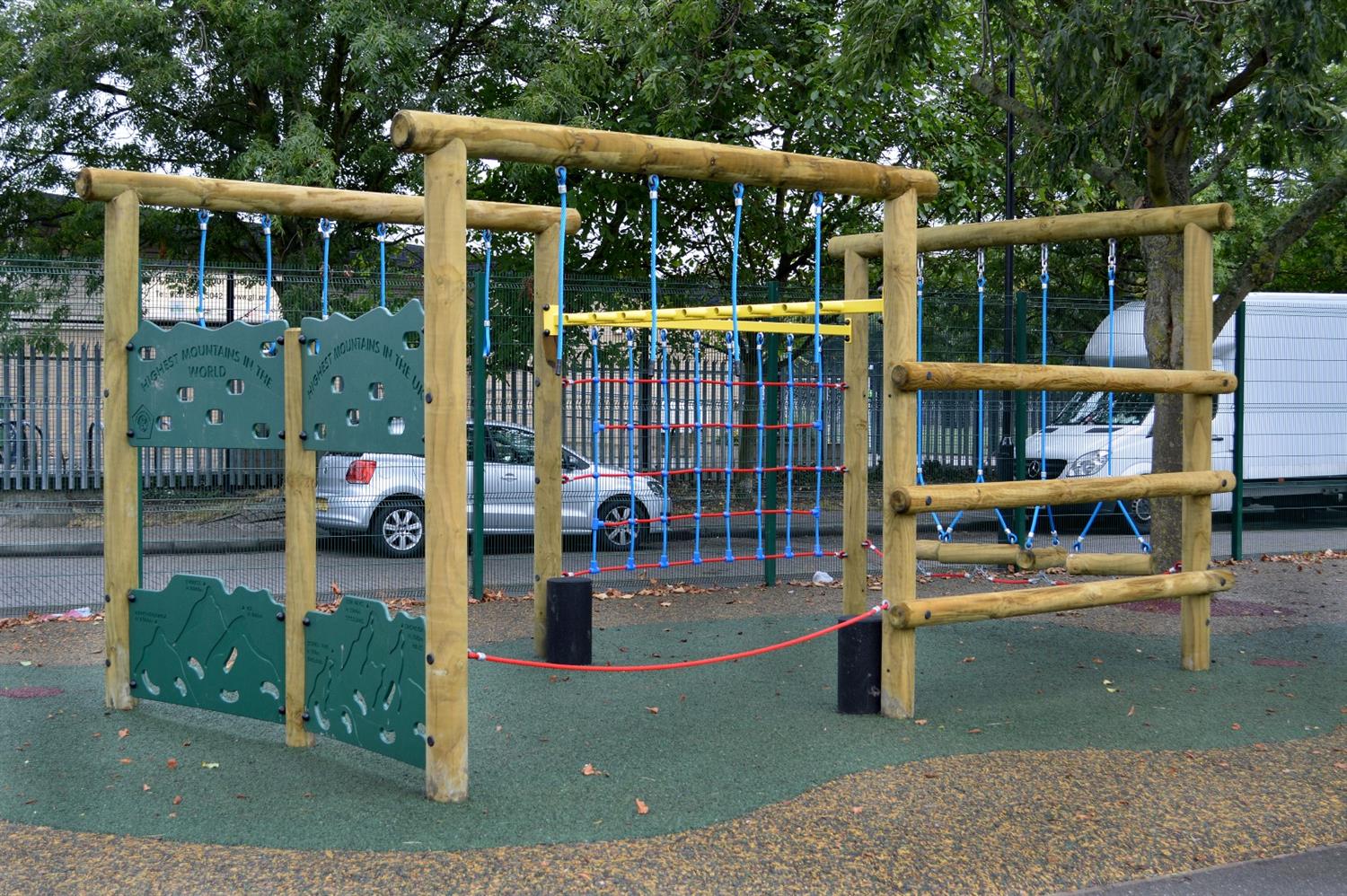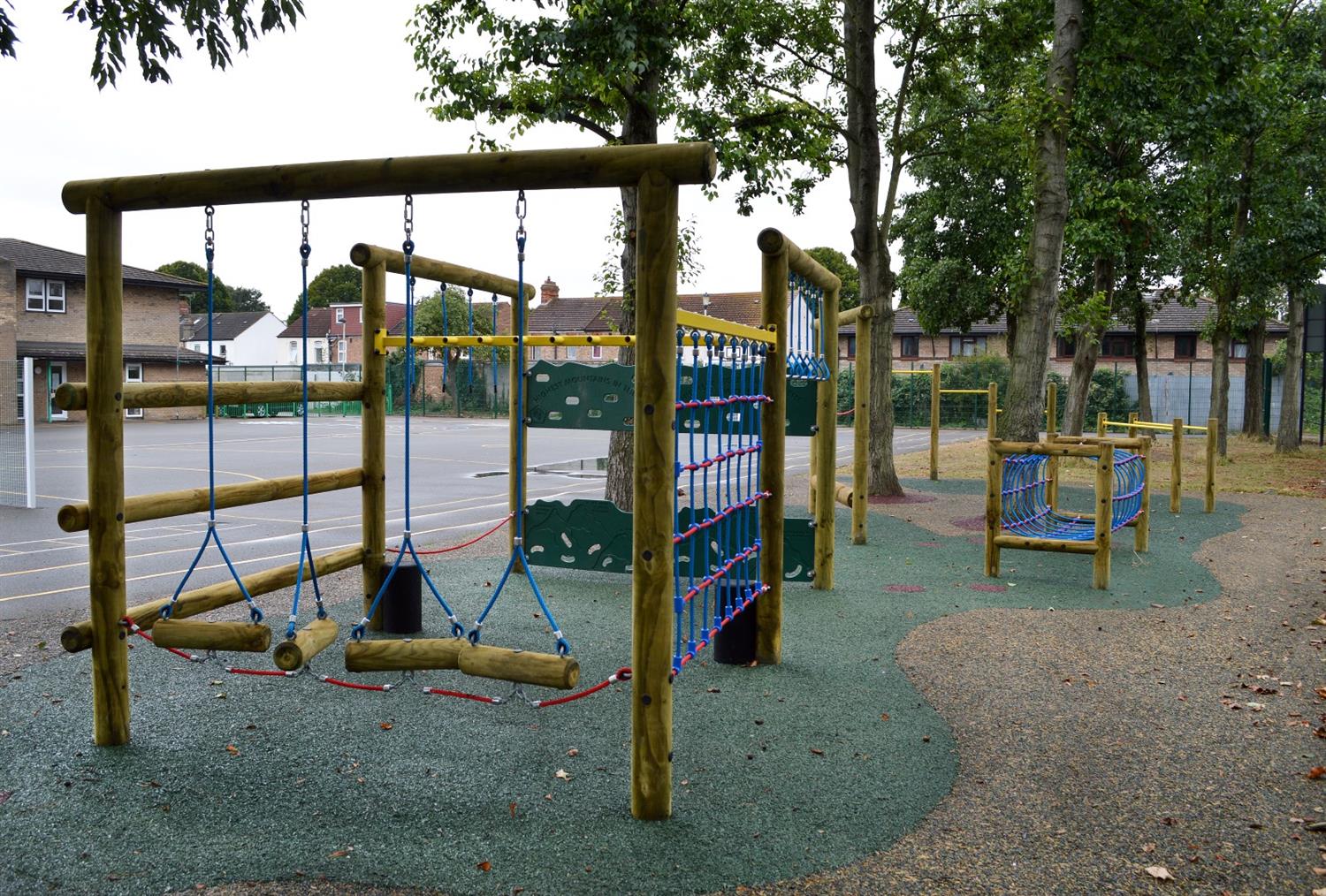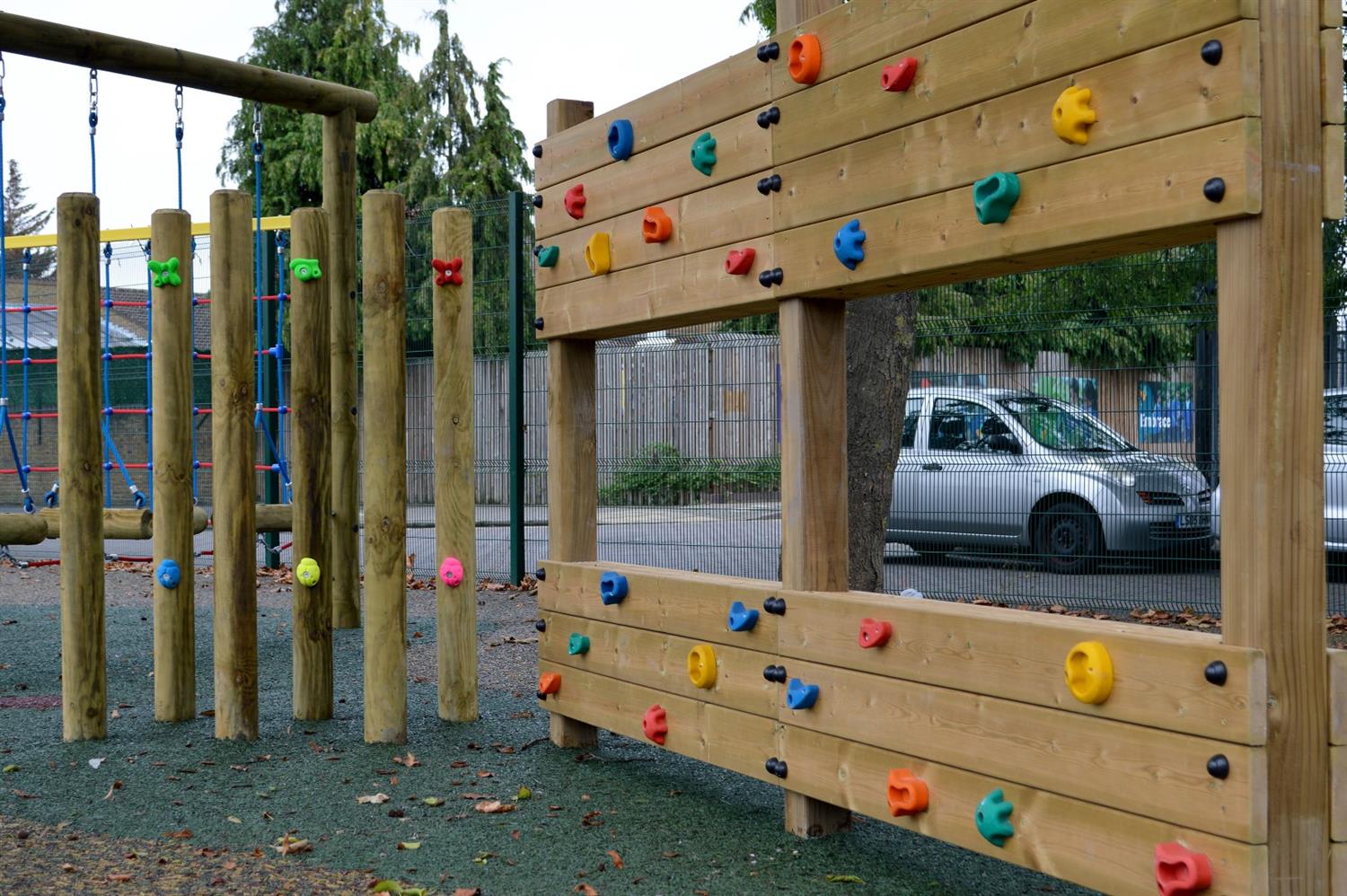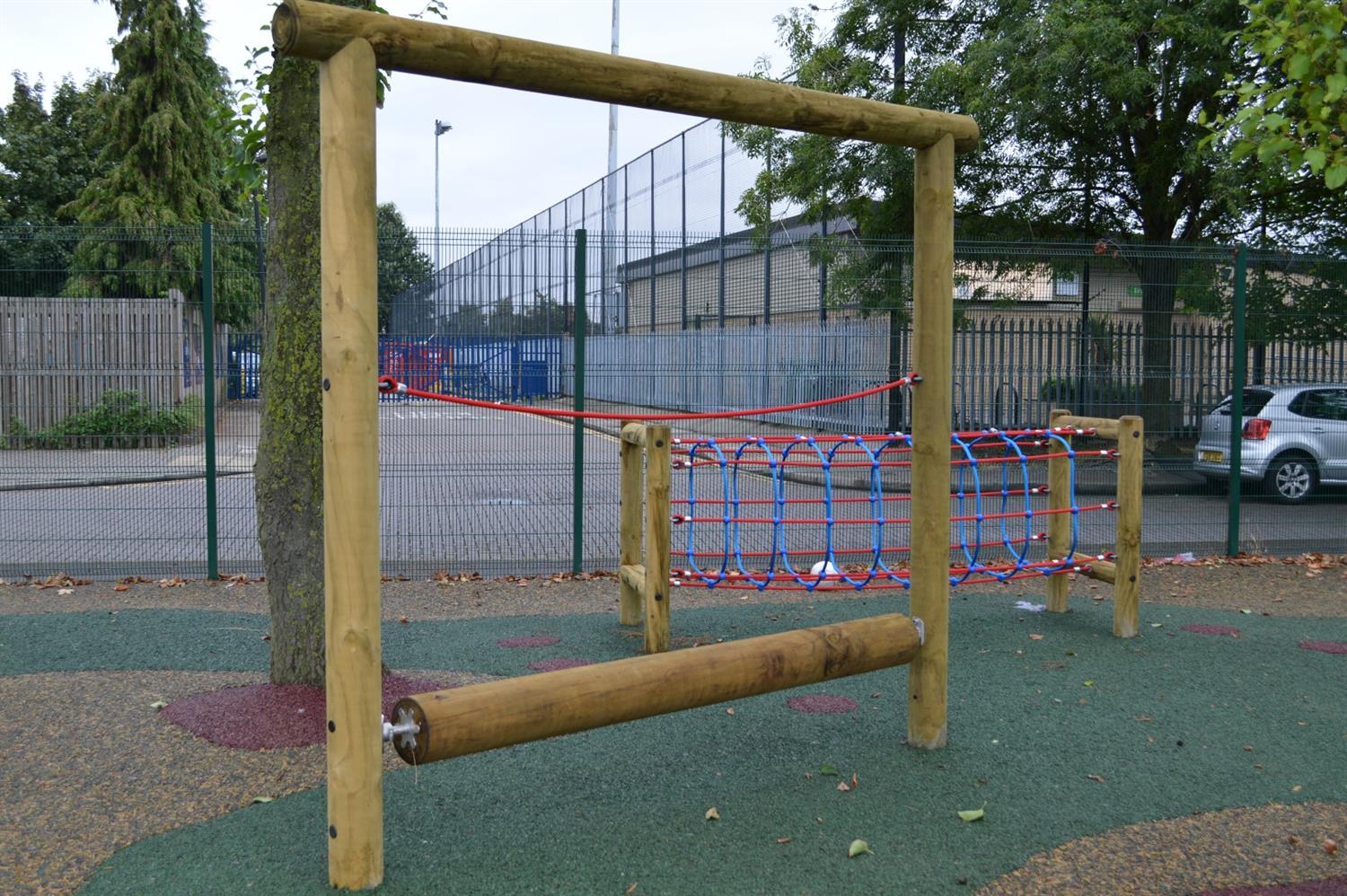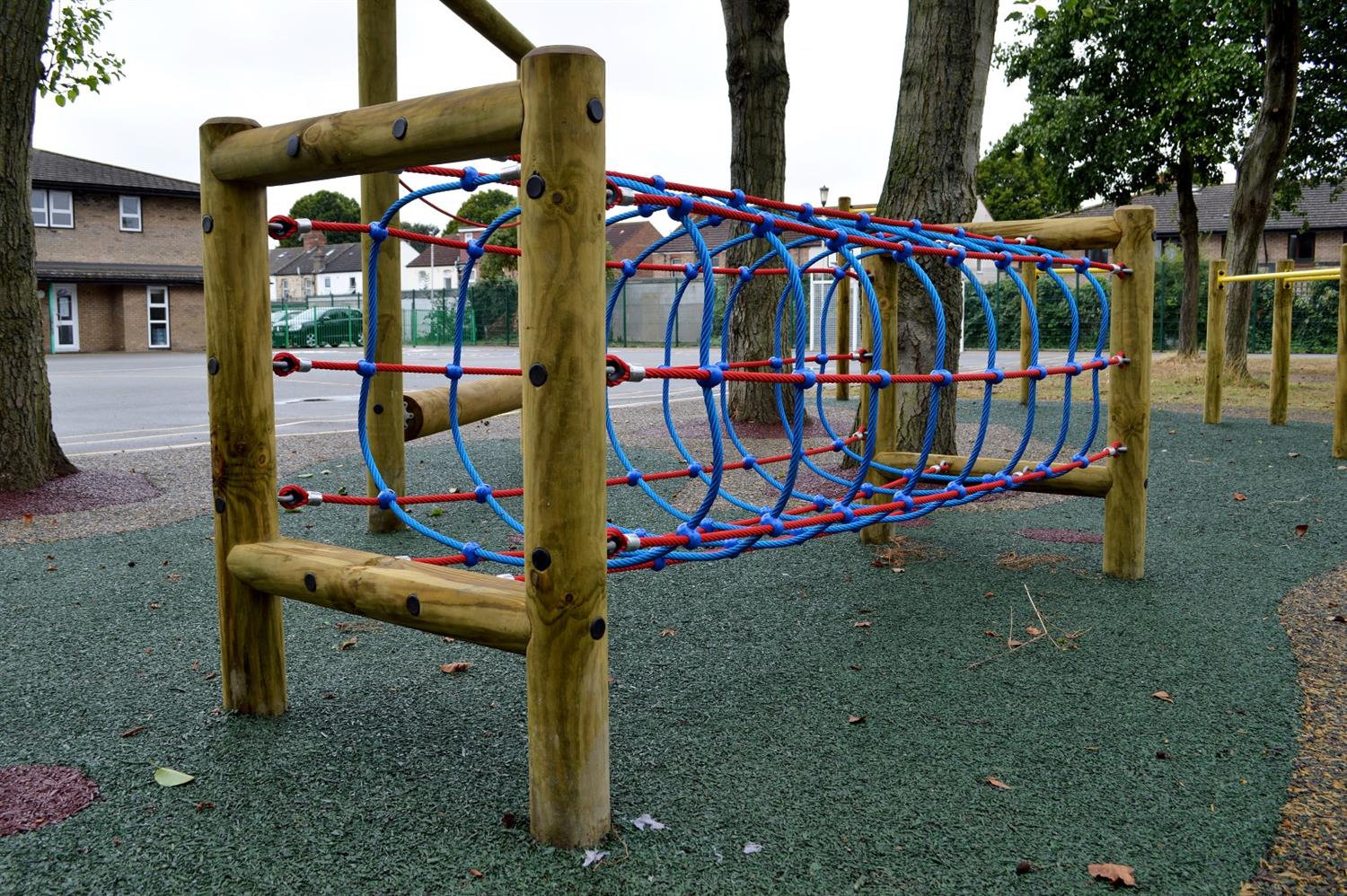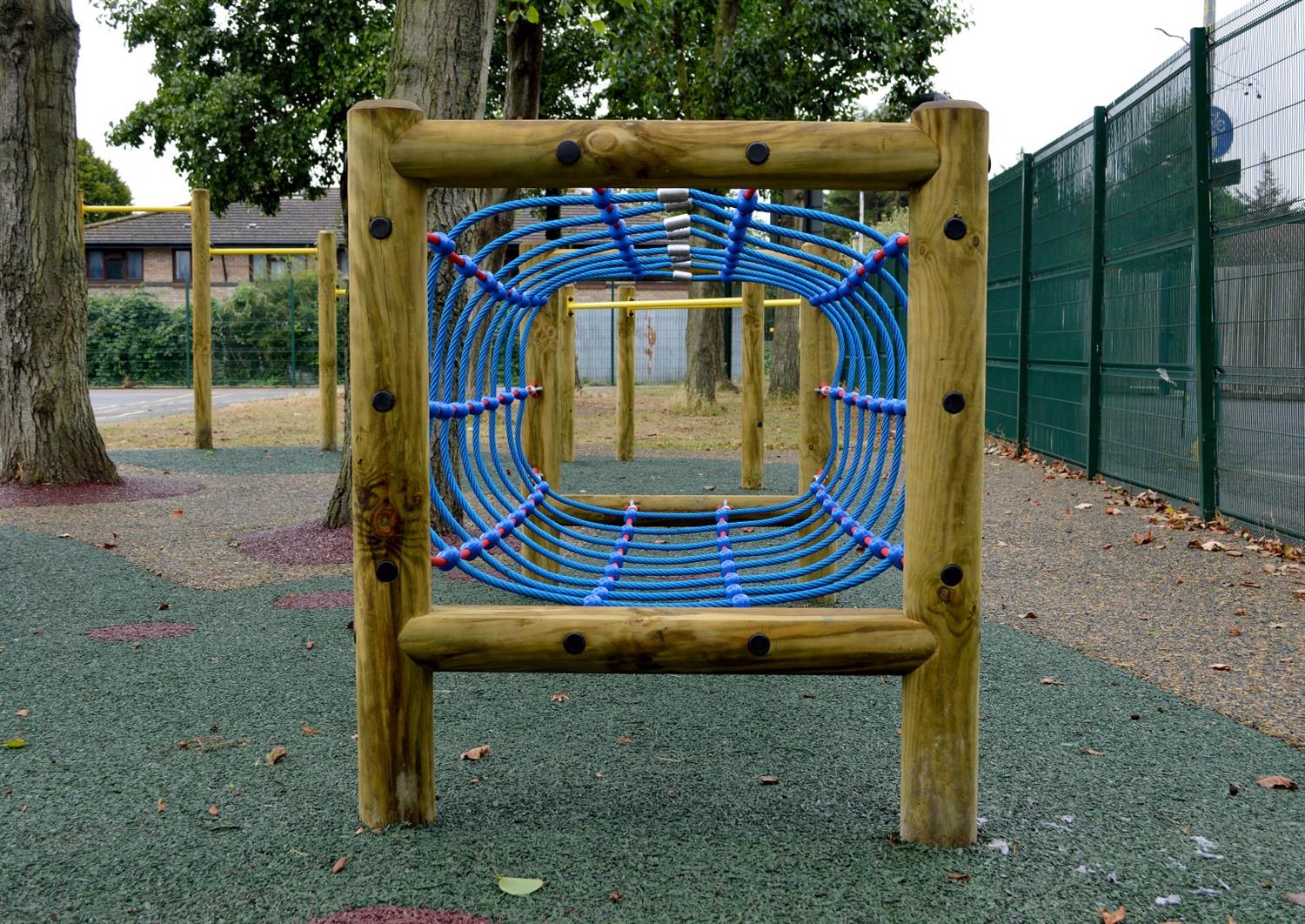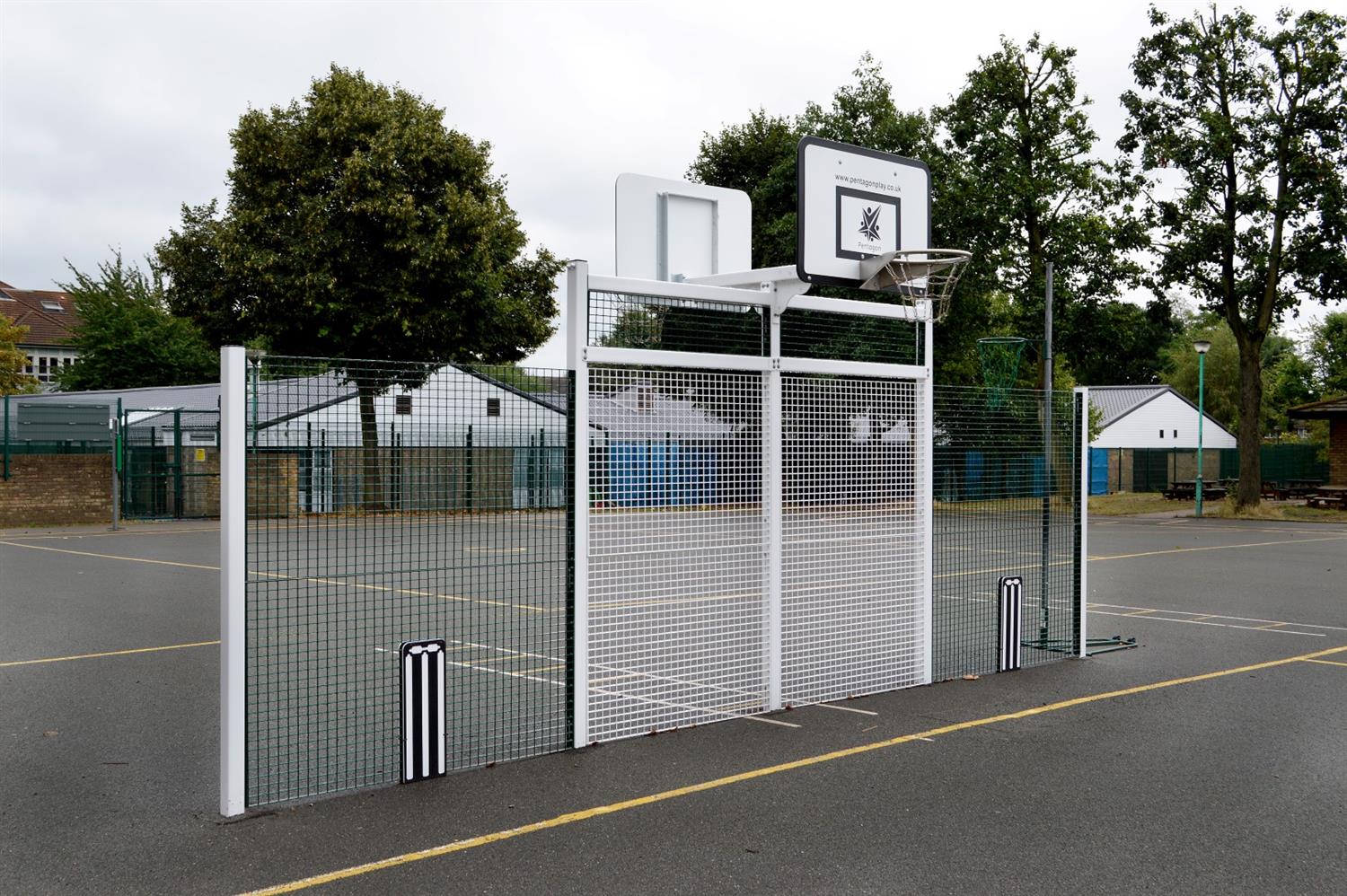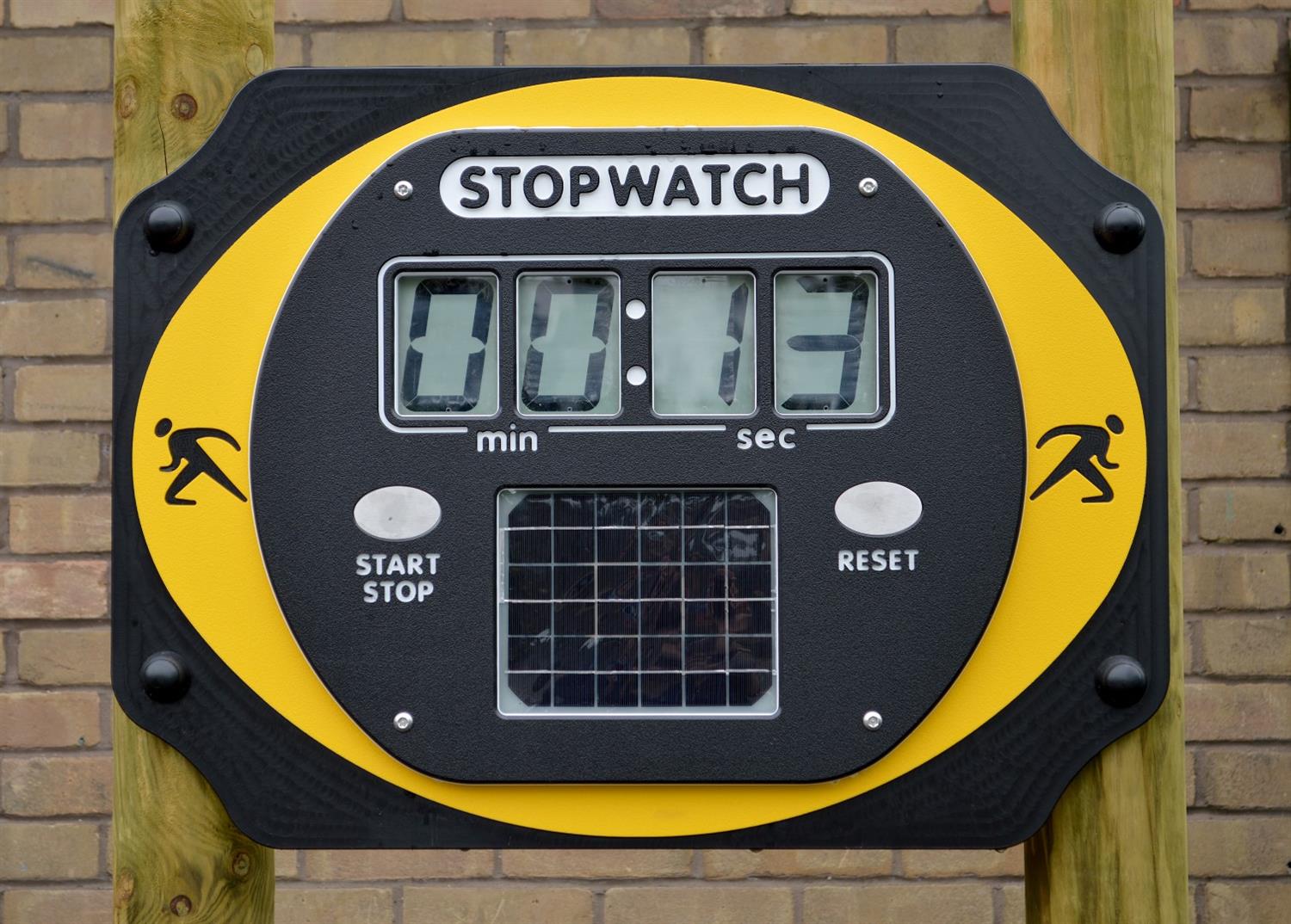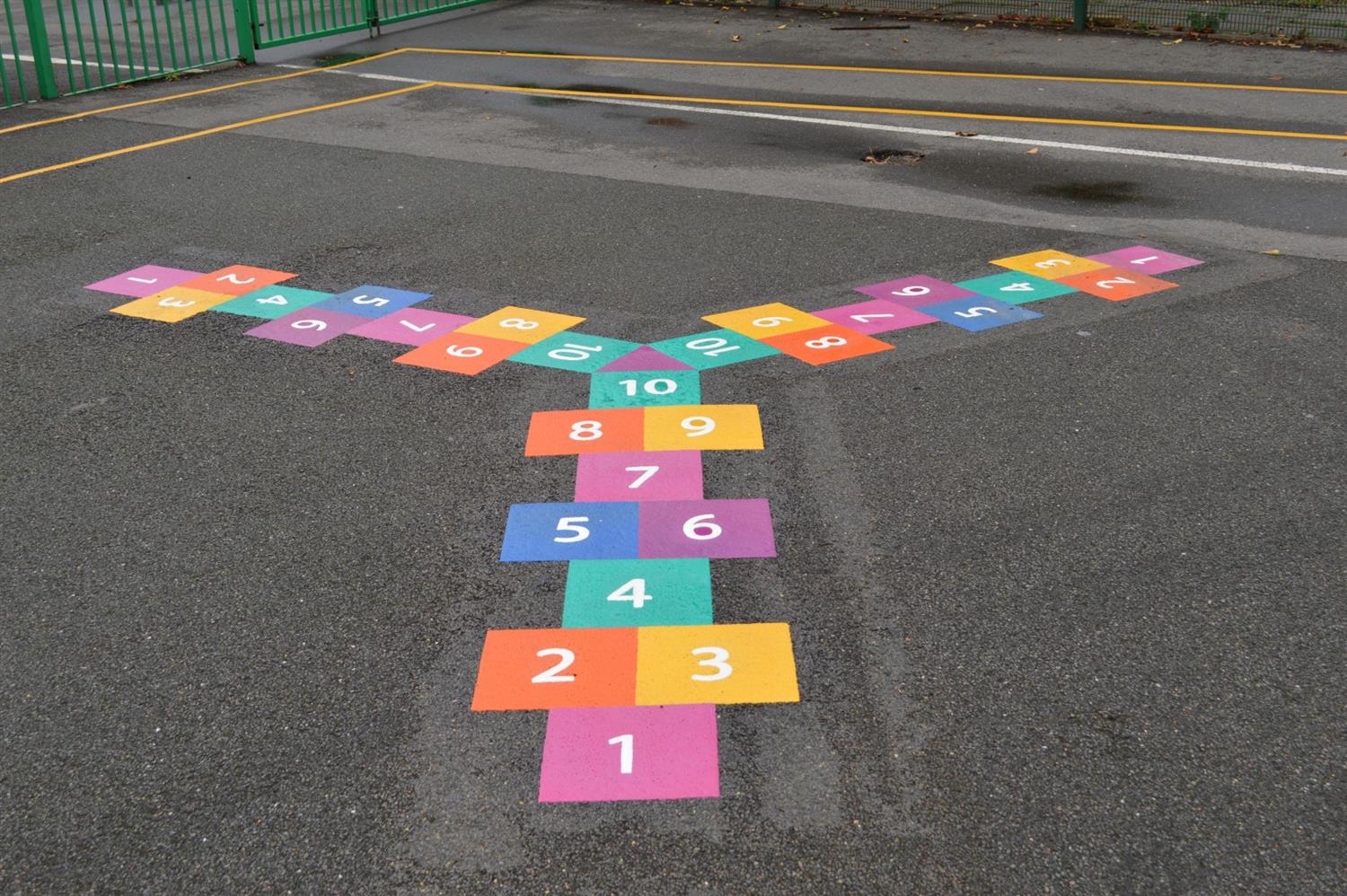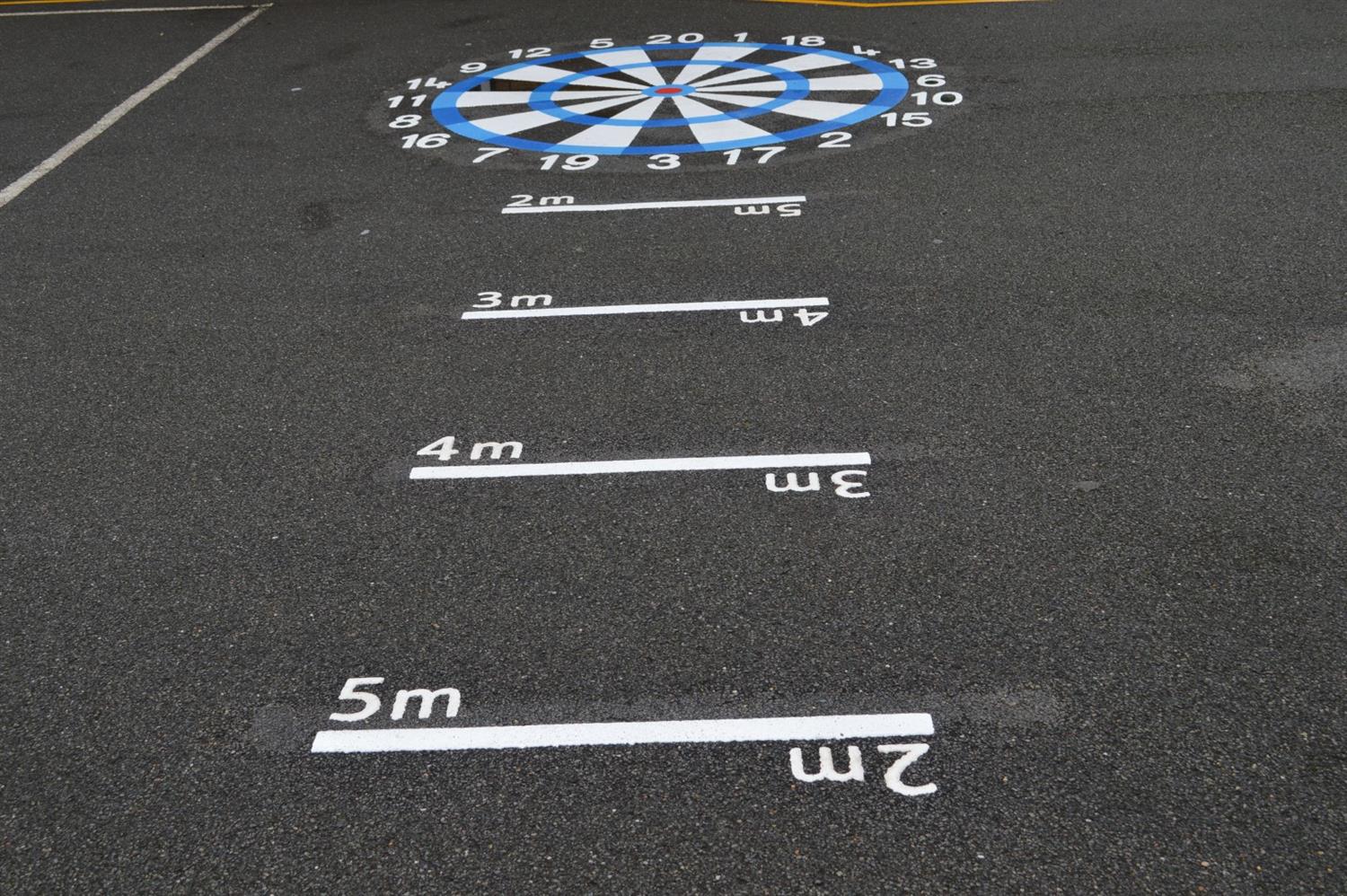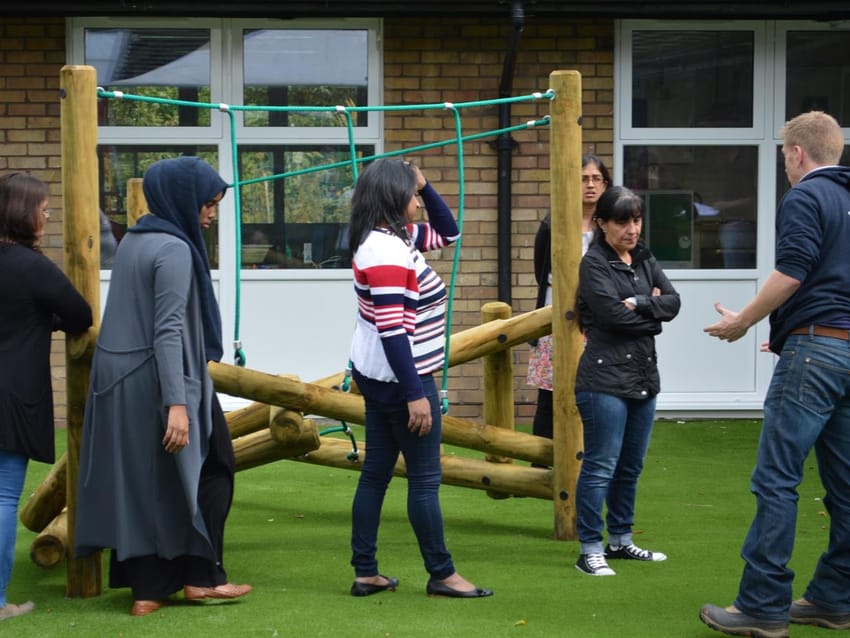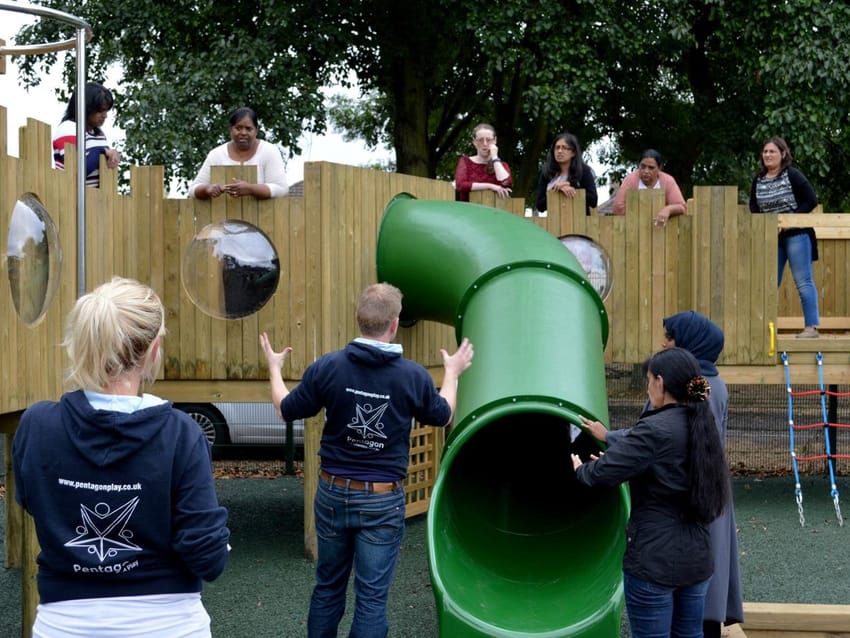
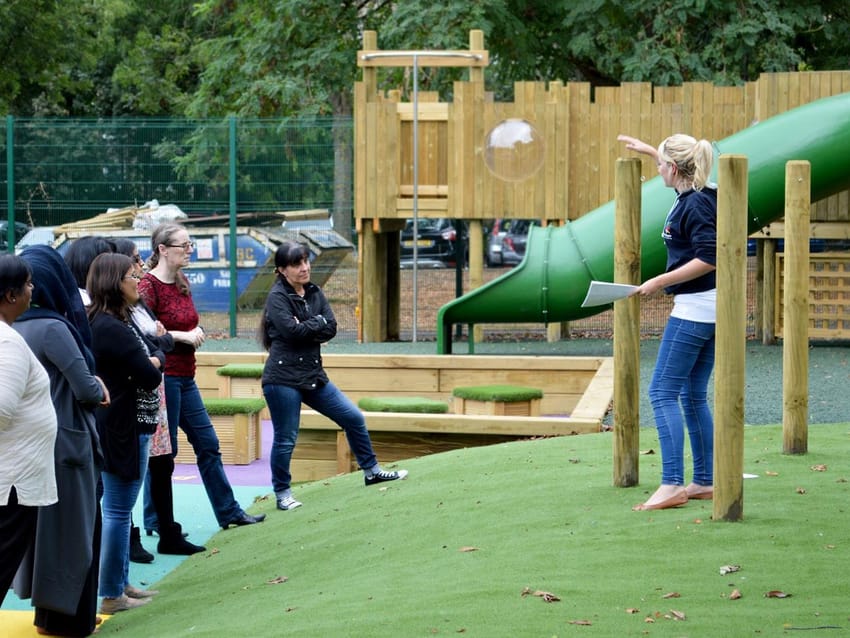
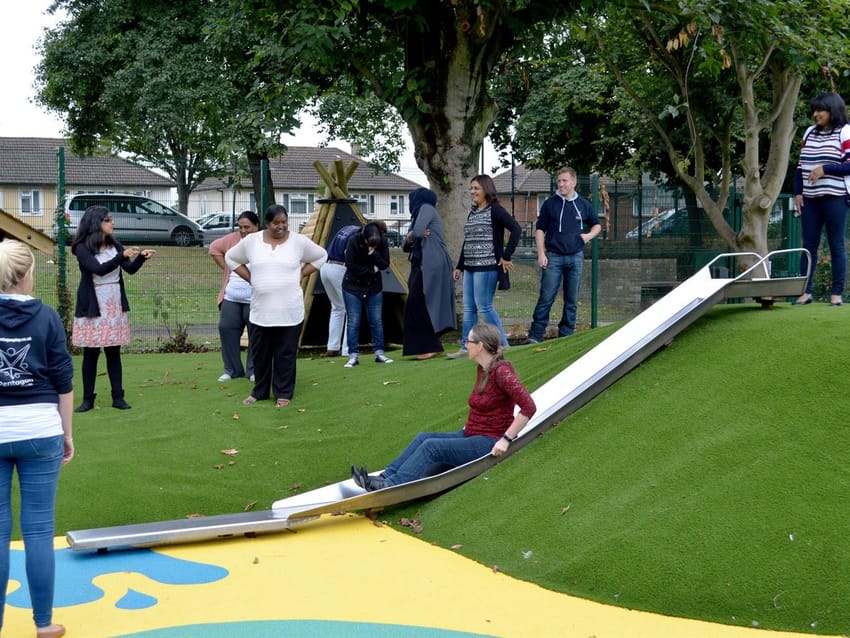
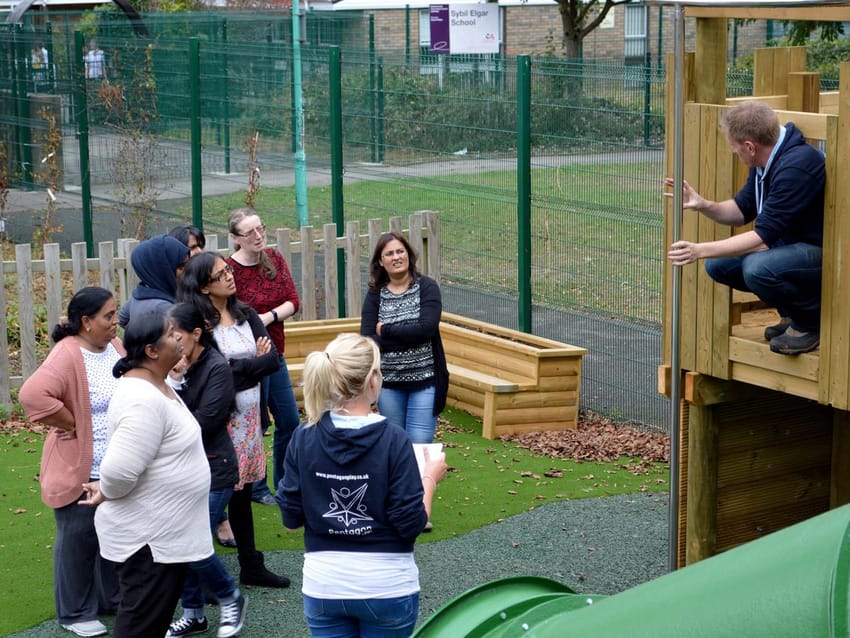
James and Becky from Pentagon Play, conducted a day of teacher training within Havelock Primary School's new early years playground environment. You'll learn some top tips on outdoor activities and ideas below!
We recently worked with Havelock Primary School where we created fantastic spaces for their reception and nursery children. We also transformed their KS2 playground with a focus on physical development and active play.
As it was such a large development, we wanted to make sure that the teachers at Havelock were comfortable and happy with the resources as well as provide them with some ideas for play and learning.
Becky and James arranged and conducted a teacher training day with the school’s early year’s team to help them get used to the new environment we had developed as well as informing them of potential ideas and activities they could potentially create that link into the curriculum.
Before the visual and interactive teaching session, the day began with a presentation where we discussed the teachers new playground and how it links into the curriculum.
During the presentation, we covered the prime areas of learning and discussed the benefits of outdoor play relating to their new playground. It helped teachers create, imagine and understand further ways to unlock the full potential of their new resources.
Remember there is no such thing as bad weather when outdoor learning is involved.
It’s time to get practical and move outside!
We started off in the school’s new Nursery playground which was the largest phase of our development and an area that covers all of the prime and specific areas of learning.
It's time for some great water play activities!
We firstly focused on our Water Tables and explained how if used to their full potential, these resources can make key curricular links to: Understanding of the World, Mathematics and Communication & Language.
Also, we discussed the importance of supervision at a distance especially when it comes to this type of sensory play. It becomes more effective when you allow children to experiment and learn alone and provide support when necessary and ask the children open questions like; What do you think? How about your try this instead? Have you asked others?
Some of the Water Table activities we suggested for Havelock were:
- Investigating volume through a range of bottles, tubs and funnels – transferring water from one vessel to another.
- Sinking and floating - children will be able to grasp an understanding of what makes something sink and what makes something float. Internalising why they are different and discovering how some things that usually float can be made to sink e.g. filling a bottle with something heavy.
- Cascading water and gravity – The transfer of water always goes to the lowest point. Can we stop it from travelling down? Will it ever travel upwards?
- Imaginative themed play – Sea side objects and toys are a particular favourite
- Phonic pebbles band number stones can be a fun resource that children can use independently or as part of directed learning.
Let's get digging! I’ve heard there’s Dinosaur eggs...
Sand play is extremely popular in early years and is a great way to educate children in key areas of learning; Understanding the World, Mathematics, Literacy, Communication and Language and Personal, Social and Emotional development.
Similar to other messy play resources, the Covered Sand Box works fantastically for both teachers and children as an independent learning/play resource. We wanted to make sure the teachers were provided with a list of fun versatile activities that the children would enjoy and use as inspiration for their own sand-related games without the need of any input from teachers.
These activities were:
- Construction and building – children can build car ramps/tunnels/ roadways. They might wish to build blocks and buildings out of sat and other resources
- Investigating capacity through a range of tubs, bottles and funnels – how does the sand move when being transferred from one vessel to another. What similarities and differences does sand have with water?
- Imaginative play - creating meals of sand (similar to the mud kitchen), towns, road ways and various imaginative social stories they self-generate
- Mark making – can be Teacher lead or independent, copying letters and numbers from cards/numbered pebbles etc.
- Archaeological excavation - discovering dinosaur eggs, buried treasure, themed learning resources. Can they order the objects by number or size?
- Stage - Once covered over this resource can be used as stage for children during their imaginative play games.
The Open-Ended Tuff Spot Table
Our Tuff Spot Table brings endless possibilities for outdoor learning. The key is to keep activities fresh for continued high engagement.
The areas of learning this resource can cover are: Understanding of the World, Mathematics, Literacy and Communication & Language.
The activities we showed the school were:
- Habitats – children create animal habitats, thinking about what living things need to survive, food, warmth/shelter etc.
- Sorting – this can be sorting by colour, by shape, by size, by any way they wish to sort the objects.
- Motion – using cars, marbles and beads children can enjoy learning about motion, making different sounds/role speeds etc.
- Mark making - in sand, flour, washing up liquid with PVA, paint
- Tactile, sensory and messy play - (particularly good for children with SEN) coloured spaghetti, cornflakes, sand, flower, jelly, leaves, paint, washing up liquid with bubbles.
Can you throw the bean bags onto the even numbers?
One great way to include new opportunities for learning, is through the surfacing itself and Havelock’s bespoke Wetpour surface design, included Wetpour Numbers.
There are many activities that link Physical Development with Mathematics i.e. ‘circuit training with numbers’ where a child/teacher picks a number to stand on and when they do, each child must complete an action relating to their chosen number (Number 5 = 5 Star Jumps).
As well as this activity, we also shared these easy ideas:
- Bean bag target throwing – Can you throw onto a number bigger than 5? Smaller than 10? What number did you get? Can we count each number until we reach your bean bag?
- Number trail – set children on a scavenger hunt to seek out numbers around their EYFS area. They must match the cards they have collected to the numbers on the ground.
- Mark making – tracing numbers on the ground with the children’s finger or even a marble etc. This can be copied onto a whiteboard.
- Numbers shopping list – children must find objects from a shopping list to sort and lay next to the numbers on the ground. (1 = pencil, 2 = toy cars, 3 = sticks, 4 = leaves etc.).
- Sorting numbers – Children must sort the number of items from a box and place them into groups. They must then place the group of items next to the number on the ground i.e. the 4 teddy bears goes next to number 4
- What’s the time Mr Wolf? – One child must act as the wolf and stand on a number. The rest of the children start at 0 and shout ‘What’s the time Mr Wolf?’ The child who is the wolf shouts out the number they’re stood on and the rest of the class must then count their steps towards the wolf until the wolf shouts ‘Dinner Time!’.
(Example of Wetpour Numbers taken at St Peter’s)
).jpg)
It’s in a child’s nature to get messy!
Unseen by many teachers, a Mud Kitchen is the perfect real-life resource that promotes the prime areas of learning. We mentioned the importance of managing the number of users at any given time and also adding resources such as bowls and cooking tools to help with understanding and role play.
We showed and presented these ideas for the teachers to guide input when using the Mud Kitchen:
- Creating Potions – Giving children herbs, plants and other natural ingredients to make exciting potions to cast magical spells
- Add CVC and CCVC words to the mud kitchen top for children to be immersed in language visual language (e.g hot, cut, mix, chop, cup, stir, dig etc)
- Run a Mary Berry ‘Great British Bake Off’ or ‘Big Cook, Little Cook’ Workshops Mud Kitchen workshops with the children where you invite language rich opportunities and lots of opportunity for sensory fun. (Language such as squeeze, squelch, pour, drain, smother etc)
- Special themed menus to link with class topics (Food from around the world, food you can eat as a snack, food you can eat on the moon)
- Have a healthy eating discussions (fast food vs healthy food)
I think today is a great day for a Space Station at Havelock!
We moved over to our fantastic, open-ended Playhouse. This is a flexible resource that relies on the inclusion of varied supporting resources.
The Playhouse can change children’s learning focus through the linking of either classroom topics or realistic play scenarios i.e. Vets/Schools/ Café’s/Doctors/Igloos/Space. This will help children to feel more comfortable interacting and communicating with one another.
When props get added, children will have to learn the importance of turn-taking and sharing roles to master the perfect pretend and group play activities.
Additionally, our Den Posts can be covered with different materials to create a similar independent and open-ended playing experience as the Playhouse. We explained to the school why the two resources work excellently together. For example, if on one day the Playhouse was the children’s Space Station, then the children must build their Space Ship using the Den Posts!
Onto the Castle!
Havelock’s Langley Play Castle improves children’s physical, personal, social & emotional development as well as their communication and language.
One of the key points we covered, was the importance of managing risks during play times. We discussed the importance of having set rules and regulations to ensure children play safe:
- With physical activity in an EYFS space, it is important to have clear boundaries and rules to keep all users of the space safe.
- The children must be a part of the rule making discussion to help them remember them. Keep these rules simple (one at a time on the slide and to take it in turns on equipment for example).
- Any child who doesn’t follow these rules misses out their go, they will quickly learn the importance of following the rules.
- If and when children break the rules, take the opportunity to share a dialogue about was unsafe and help them to begin consequential thinking.
We then discussed that even with an extremely fun and challenging resource like their play castle, over time, children will start to use the equipment in less meaningful ways if they feel they are no longer challenged. So we emphasised the importance of children continually experiencing new risks and challenges.
Here are some example questions that you can ask the children:
- Can you travel using different body parts?
- Can you climb the climbing wall only using the blue and yellow grips?
- For nervous users – can you count how many steps to the top and back down? Or can you climb the stairs using your hands and feet like a cat?
- How many Steps long is the castle?
Let's move onto the Reception's outdoor learning environment
We then moved onto the new Reception playground where we installed a bespoke Wetpour surface design as well as our ‘Artificial Grass Playturf’ to help brighten up the area and engage children outdoors.
Also added to this space was a Kinder Scout Log Climber and two Tuff Spot Tables as well as a Walk-in Store with Whiteboard and Chalkboard.
This area had a focus on building children’s confidence within the playground and preparing them for future year stages.
Additionally, the Reception area had a Bespoke Wetpour roadway with speed bumps for children to use with their miniature bikes and trikes. Having no real structure to the roadway, it immediately invites children to join in imaginative physical play. It can transform into a roadway, race track, rushing river or even a giant snake that can help create fun activities.
Playground roadways help children better understand the world around them and help them learn about road safety.
In regards to risks, we explained that the teaching staff must ensure:
- The surrounding boundaries are clear when in use.
- There is 1 direction of Traffic
- 1 child per bike/trike
- An easy to understand rota to make sure the children take it in turns to use the vehicles.
We moved onto the Kinder Scout Climber which is full of open-ended possibilities. Children are able to climb and challenge themselves or go as far as they feel comfortable.
Children should start at different points of the Climber and use the rope guide to build their confidence. We shared an idea of getting the children to try and touch each post as part of a time challenge… they could then vary it by using different body parts.
It is important to keep the more able children challenged physically as well as nurturing the less confident.
We did not provide Havelock with teacher training for the KS2 playground, as the children at this level are much more advanced and will find using the equipment both actively and creatively, much easier without supervision.
Here is the playground equipment we installed into the school’s Key Stage 2 environment:
- Back-to-back goal
- Climbing Poles
- Parallel Bars
- Pull Up Bars
- Rocking Log Traverse
- Solar Powered Stop Watch
- Rope Tunnel
- Scafell Climber
- Space Explorer
- Double-Sided Timber Climbing Wall
- Thermoplastic markings - Golden Mile, Trio Hopscotch, 9 Box Kings Court, Dart Board with Numbers
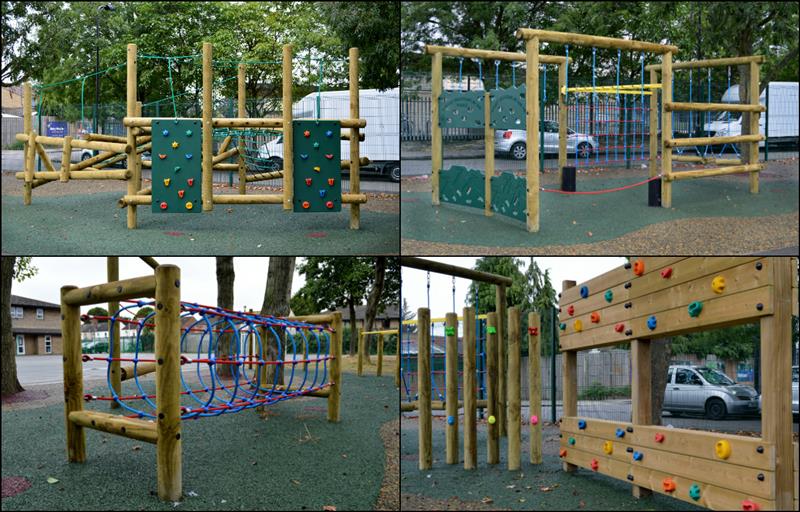
You can see and explore all of our playground equipment by visiting our products page here.
If you are interested in developing your outdoor learning environment and need a knowledgeable company to share your vision, simply Contact Us online or give us a on 01625 890 330.
You May Also Find The Following Interesting:
Our Unique Approach To Playground Projects
The Pentagon Play Process
Our Outdoor Learning Day At Mortimer St John's




